How to save energy at home - 31 expert-approved tips to save energy, money and the planet
Worried about high energy prices? Learn how to save energy in homes to lower gas and electricity bills

Lauren Bradbury
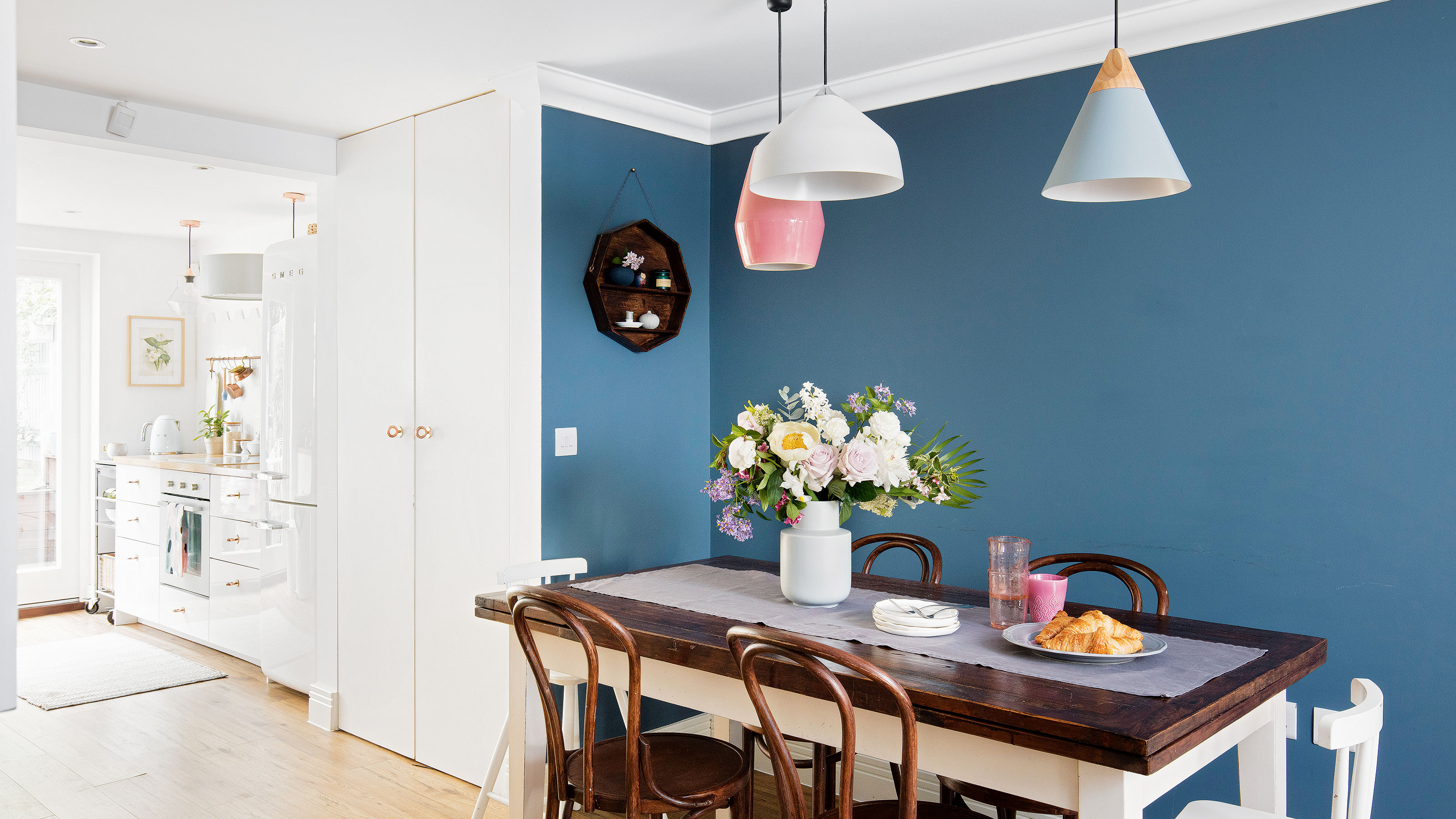
As colder temperatures and darker nights roll in, our energy usage can soar, and so learning how to save energy at home has never been more important. And sometimes, the smallest of changes can make a big difference to your house, your bank balance, and the environment. This is even more important now the energy regulator has announced that the energy price cap will rise in January 2025.
By incorporating just one or two (but ideally more) of these energy-saving tips into your life, you won’t just keep your house warm in winter. You’ll also be able to notice the real savings you’re making on your monthly bills while helping the UK reach its net zero emissions target by 2050. All in all, it’s a win-win situation.
As Laura McGradie, head of consumer advice at Energy Saving Trust, explains, ‘If every household in Britain made just a handful of energy-saving changes, the combined impact could make a big difference to our finances and the environment.’
1. Turn your thermostat down by one degree
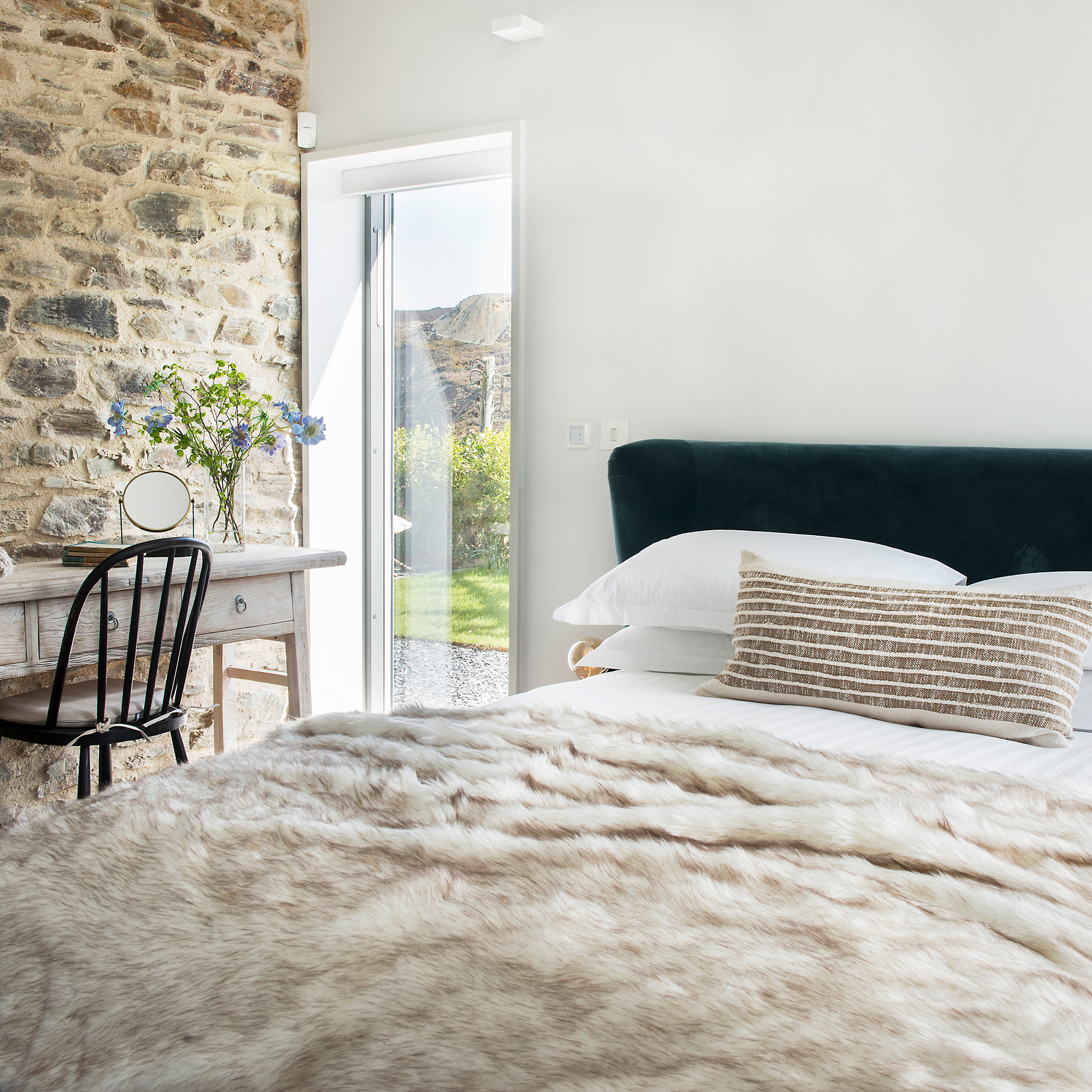
Flicking your thermostat dial down by one degree could save households across the UK around £800 million on their energy bills.
Yes, it’s long been thought that it’s cheaper to have the heating on low all the time, and apparently 46% of us believe it to be true - but it's not. According to the Energy Saving Trust, you can slash your bills by £150 per year by using a thermostat to regulate the temperature.
This is echoed by Jess Steele, heating technology expert at BestHeating, who says, ‘It’s wrong to believe that having the heating on low all day will use less energy than the boiler turning on and off, as this will cause bills to rise, particularly if your home has poor insulation. Instead, you should only use the heating when it is needed so it is only on for a few hours per day.’
At night when temperatures dip, turning down the thermostat even further and adding one of the best electric blankets to the bed instead can also be a cost-effective and energy-efficient solution for night-time warmth. Make sure you avoid these other thermostat mistakes too if you want to keep your bills under control.
Sign up to our newsletter for style inspiration, real homes, project and garden advice and shopping know-how
2. Change your lightbulbs
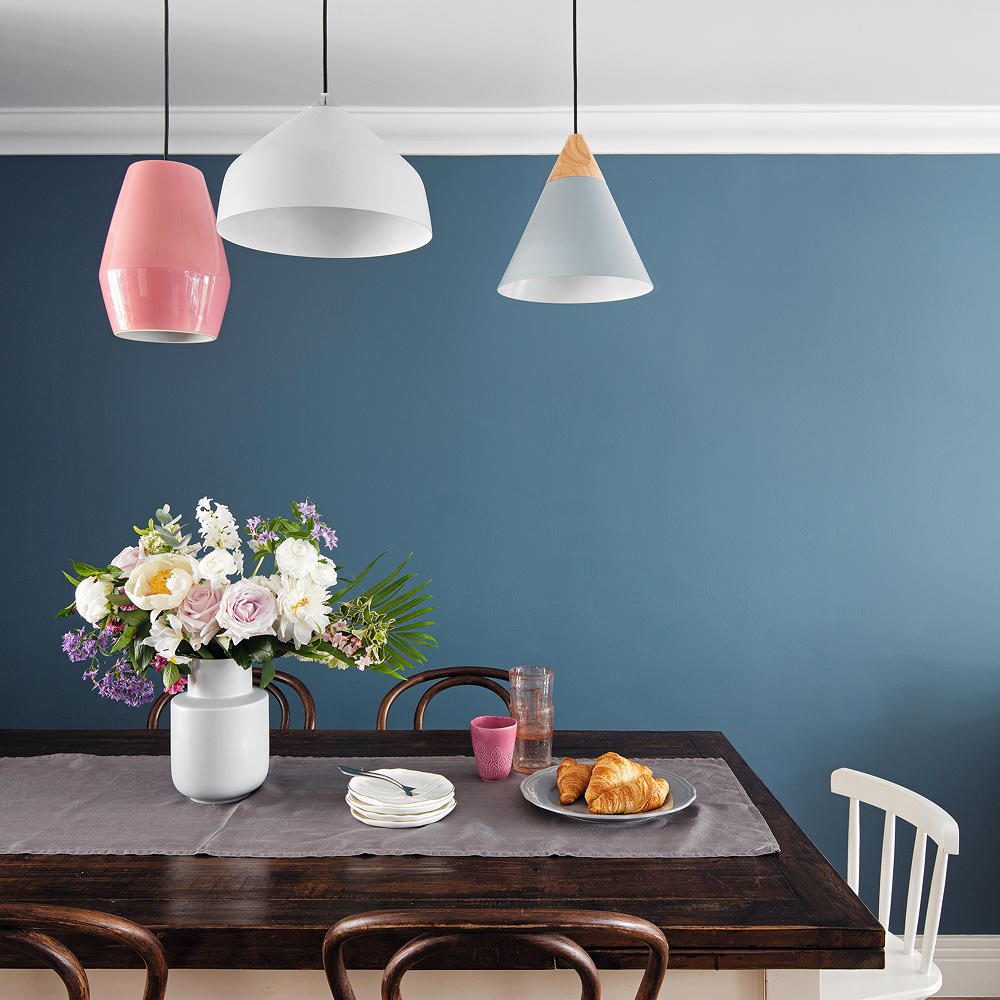
Knowing how much electricity a lightbulb uses can help you make conscious changes to your home. But you don't exactly need to have a lightbulb moment to know that switching to efficient LED bulbs – or better yet, smart lighting and bulbs that are easy to switch on and off from your phone – can have a serious impact on your wallet. But did you know just how much you could claw back?
According to the Energy Saving Trust, swapping a 100-watt incandescent bulb to an LED bulb could save energy, adding up to £15 per bulb per year.
'LED bulbs use a fraction of the electricity compared to normal bulbs,' explains Holly Herbert, property expert from webuyanyhouse.co.uk. 'Most LEDs use at least 75% less energy, saving you a huge amount on your bill.'
3. Turn off lights
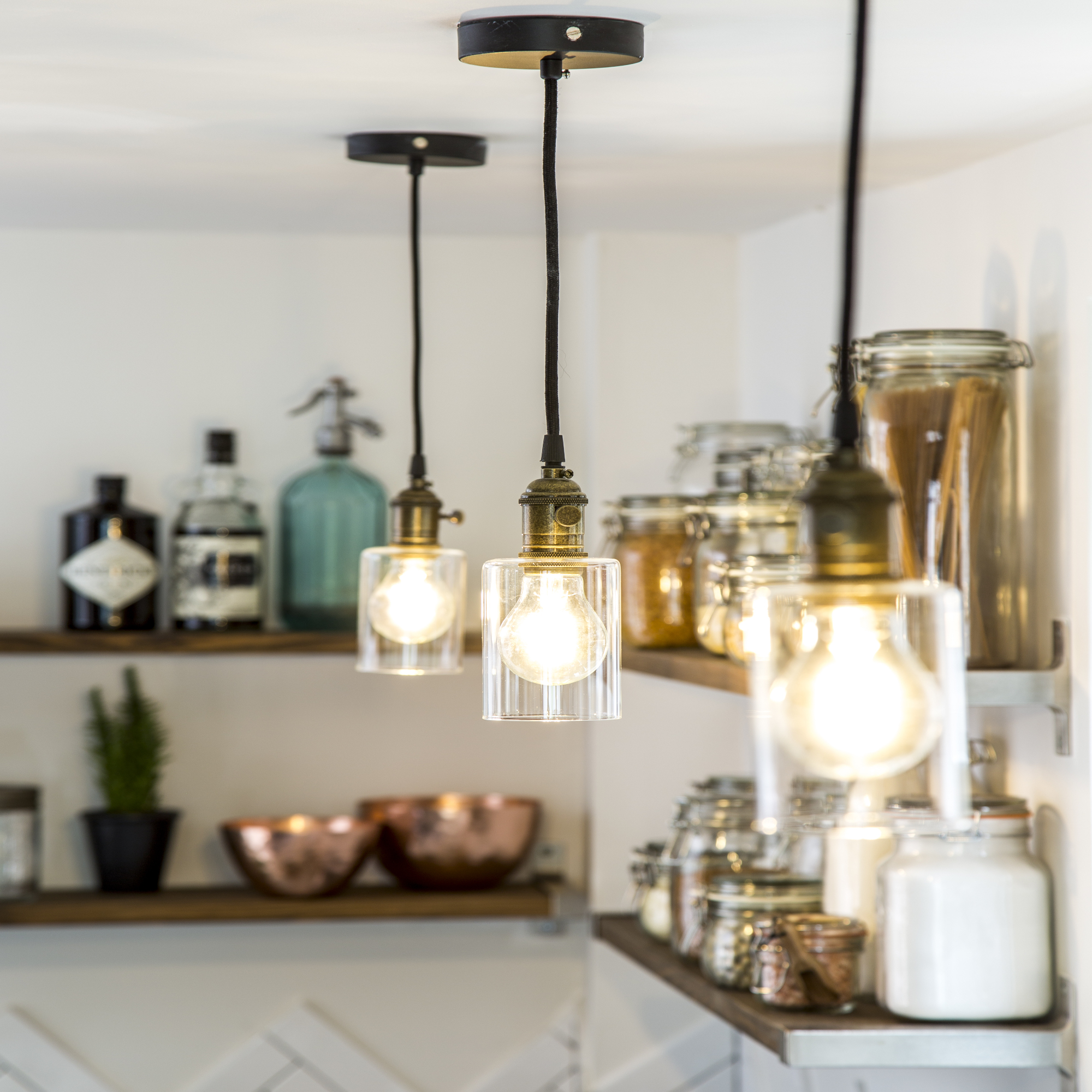
Turning off lights in a room when you're not in them might sound like a no-brainer, but it's so easy to forget to turn the lights off. But according to the Energy Saving Trust, an average four-person household could save around £25 a year by turning off lights in rooms that are not in use.
Of course, we understand that there are many conscious reasons why you’d want to keep the lights on. However, if you’re worried about potential thieves while you’re not at home, there are many other security measures for a house that can keep your home safe without costing you a fortune.
4. Stop leaving tech on standby
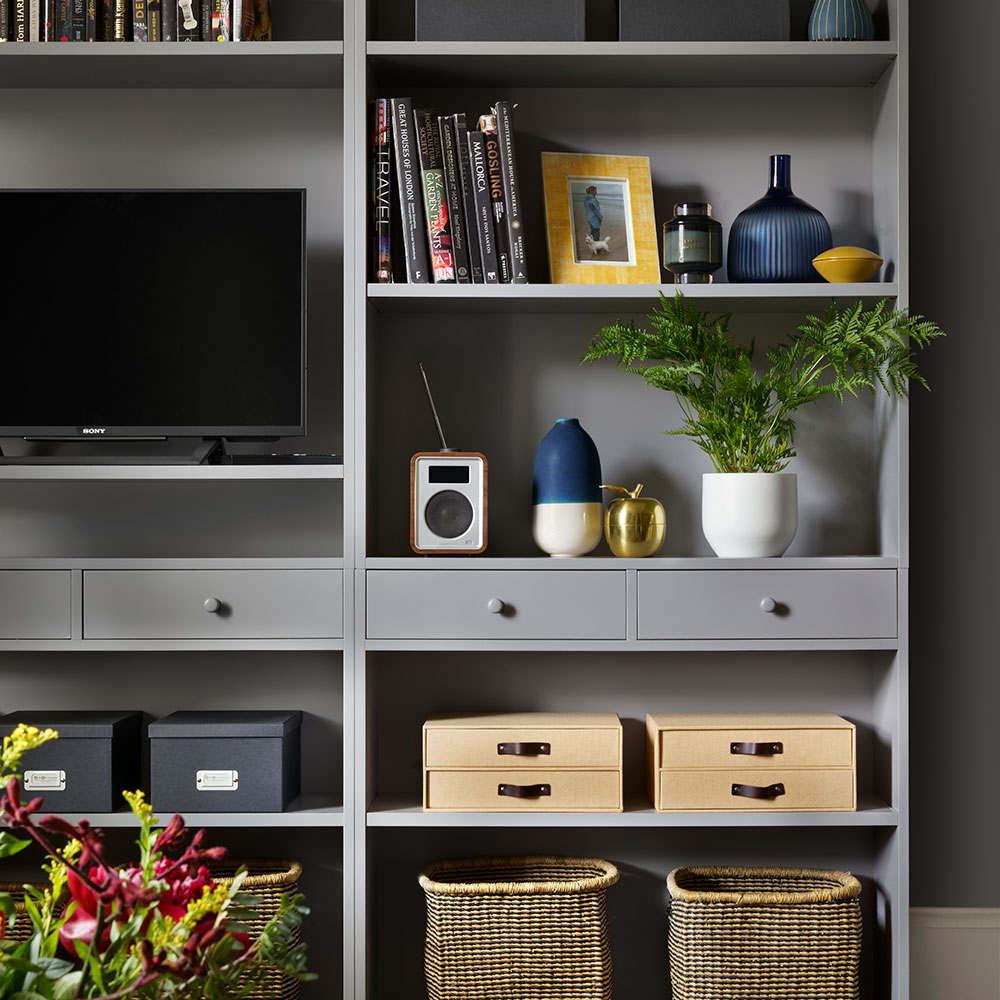
One way in which everyone (both owners and renters) can save energy and cash is by doing one simple thing with our appliances – and it could save some of us hundreds of pounds. This simple thing is switching off unused appliances and devices in our homes.
Quotezone.co.uk’s price comparison expert Helen Rolph explains, ‘Devices left on standby cause unnecessary costs to your energy bills. To curb this electricity waste, it’s important to remember to turn appliances off at the wall when they’re not being used. Some of the most energy-draining appliances, TVs, desktop computers, washing machines and game consoles can be some of the most energy-draining appliances.’
Obviously it can't be helped that some appliances, like a fridge or freezer have to kept on all the time. However, other appliances should be switched off at the wall and unplugged if possible.
Items like televisions or smart speakers use up energy, which is known as 'Phantom Load'. This is the way in which energy is invisibly drained without users necessarily knowing about it.
While the average UK household could be wasting £140 a year through their Phantom Load, across the UK savings of almost £4 billion can be made if we all switch off things collectively.
5. Don't overfill the kettle
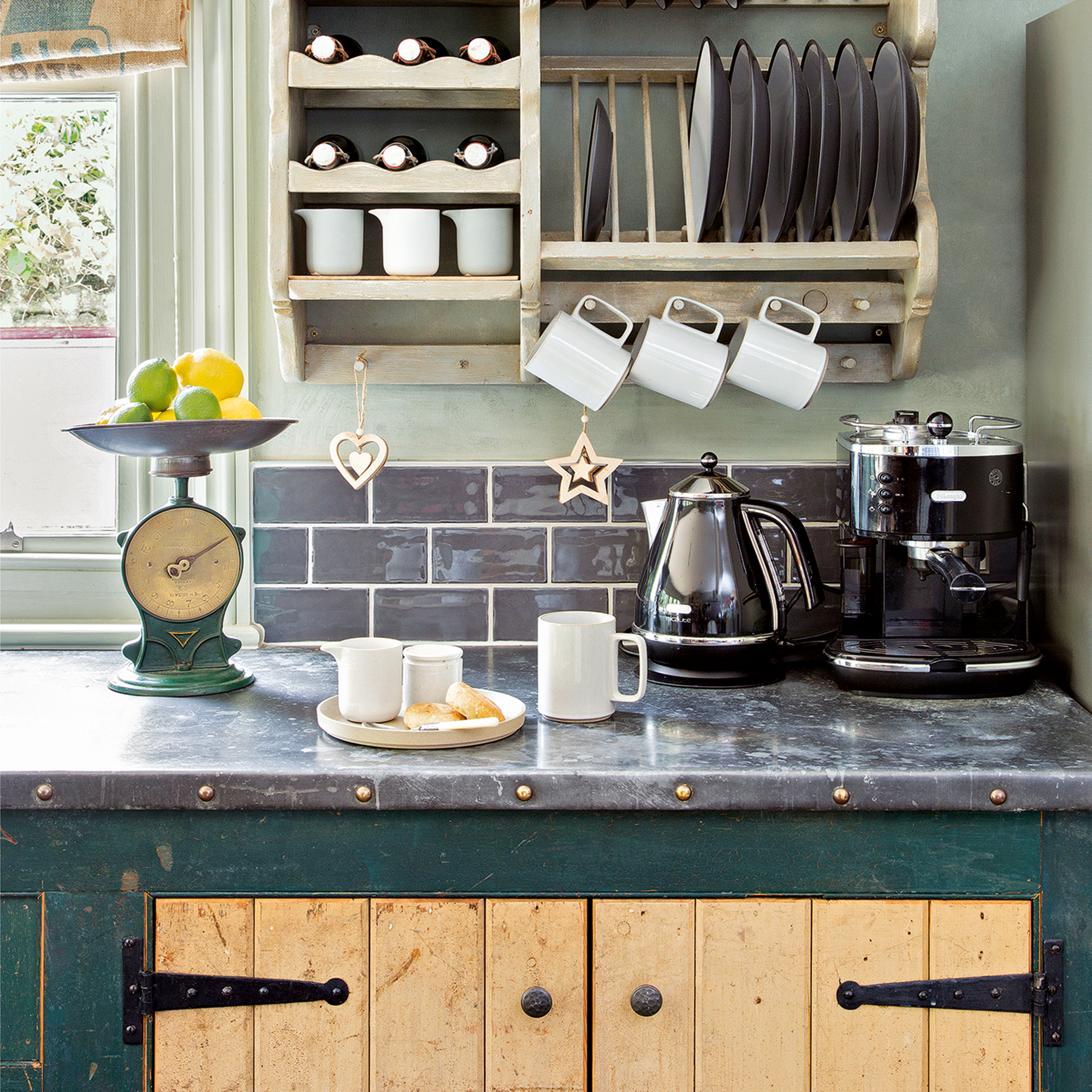
Time for a cuppa? Stop filling the kettle up to the brim – and don't be one of the 23% that re-boils the kettle. Boiling more water than necessary each time could save you £13 year, based on calculations from the Energy Saving Trust.
Kettles will vary in the amount of energy they use, but you can easily work out how much it costs to boil a kettle by checking the wattage and price you pay for energy per pence/kWH.
6. Wait to run a full washing machine load
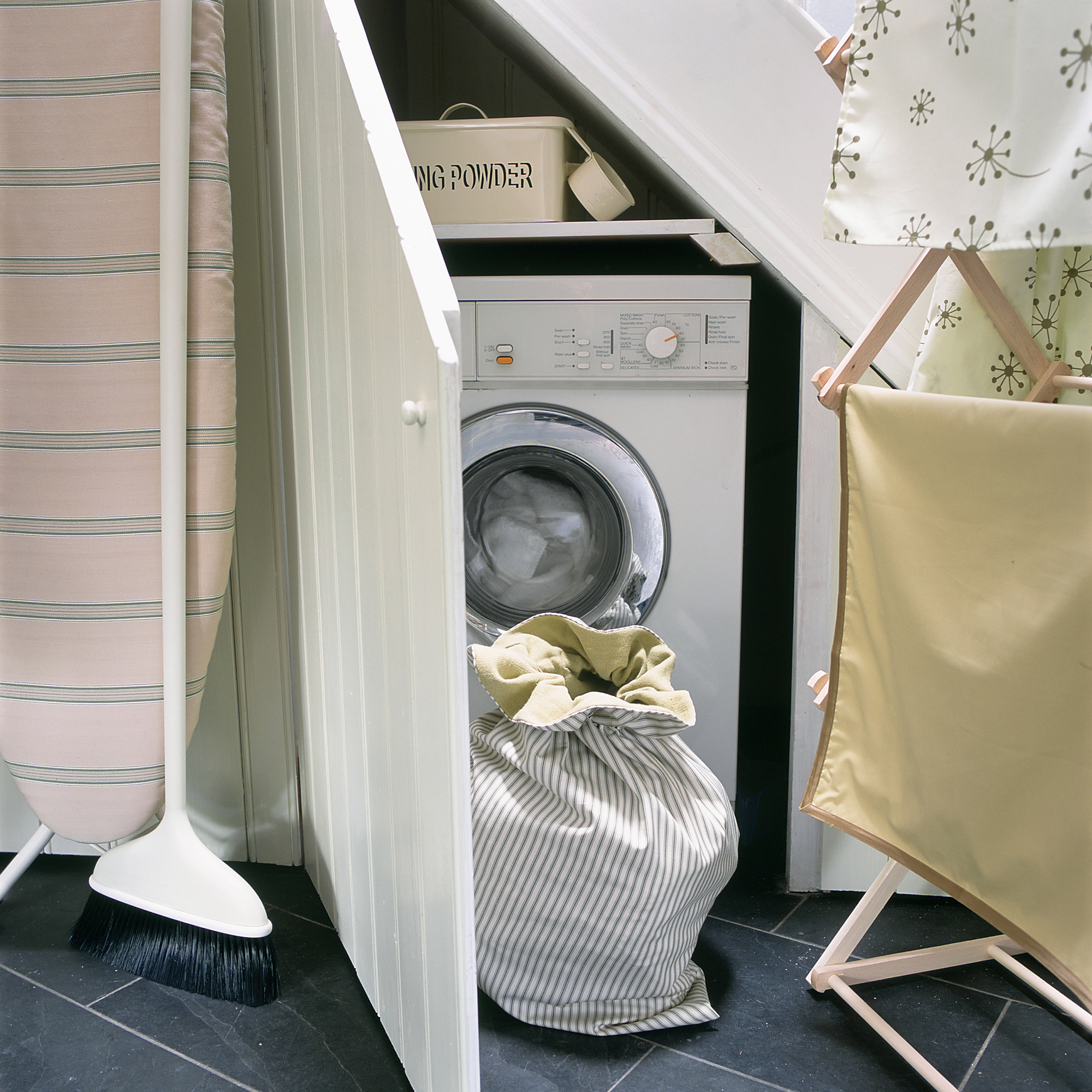
Research by Thames water and Gov.uk found that 68% of households are only putting the dishwasher and washing machine on when they are completely full in a bid to save energy. It is a savvy move to wait until a washing machine or dishwasher is full as the appliances will use the same amount of energy to clean fewer items.
7. Avoid the tumble dryer
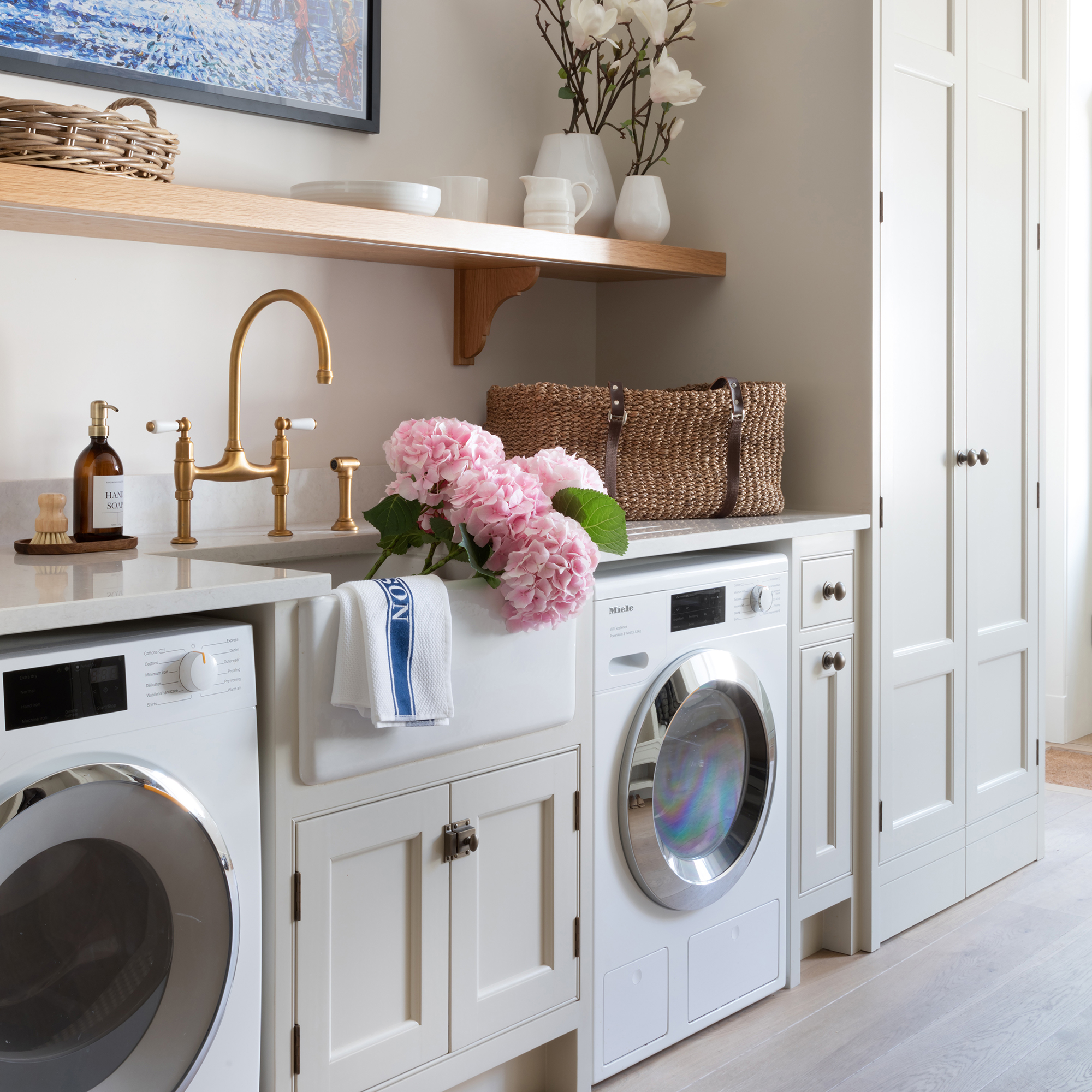
Tumble dryers use a shocking amount of energy, and they can cost upwards of £150 a year to run based on usage twice a week. You can easily work out how much it costs to run a tumble dryer yourself based on your specific model if you know the kWh.
Thankfully, there are many ways to dry clothes without a tumble dryer that will also help you save energy at home. As a more cost-effective alternative, consider drying clothes outside on a washing line or investing in one of the best heated clothes airers, which usually cost significantly less to run.
8. Cover your pans
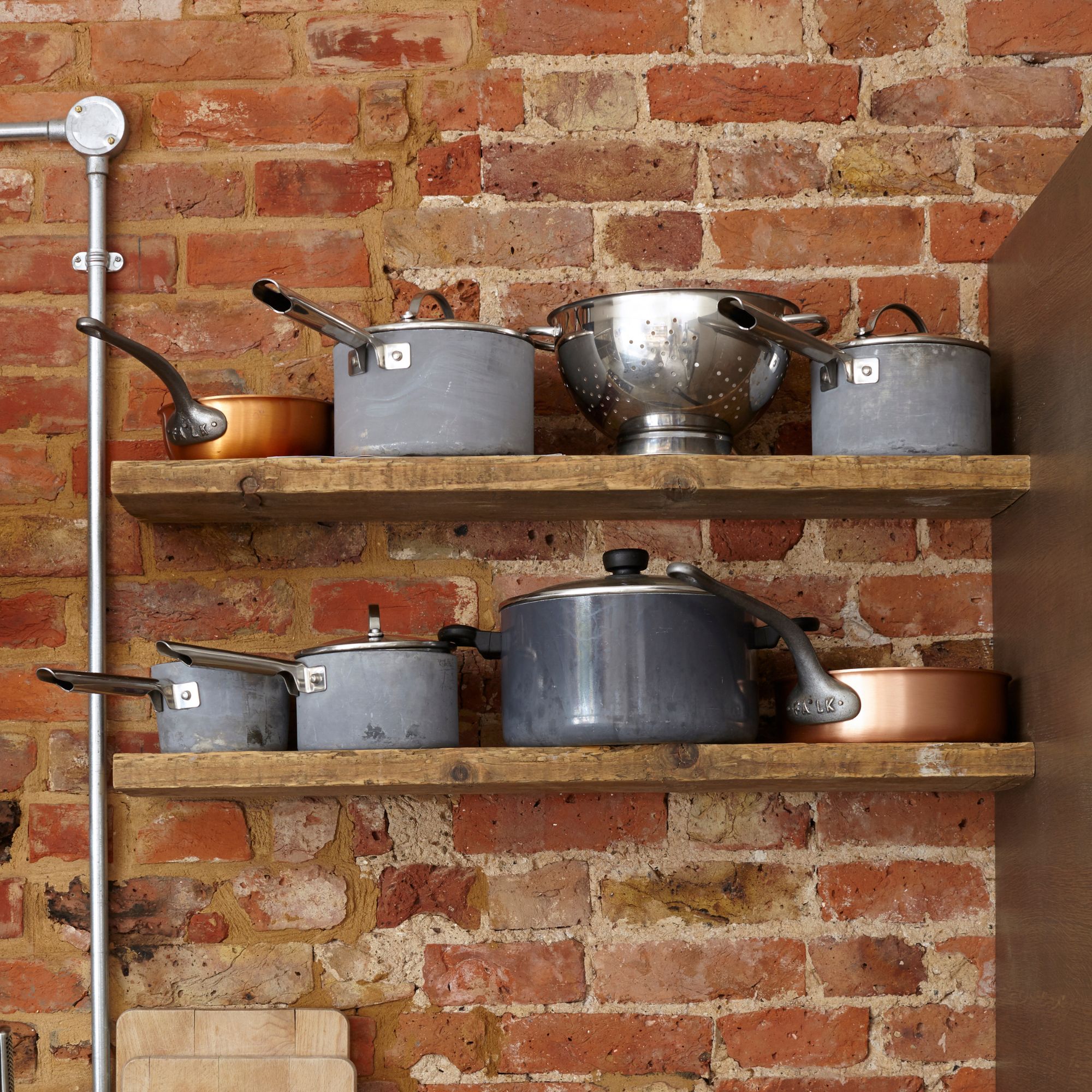
While the best saucepans are an essential addition to your home, keeping the lids off can waste serious energy. So, make sure you put the lid on saucepans so your food cooks quicker, and turn off the heat on the stove a few minutes before you're ready. Don't worry, things will keep cooking under the residual heat, and this will save energy little and often.
Finally, make sure you always match the size of the cooking ring to the size of the saucepan, to save energy rather than simply heating the air.
9. Swap the shower head
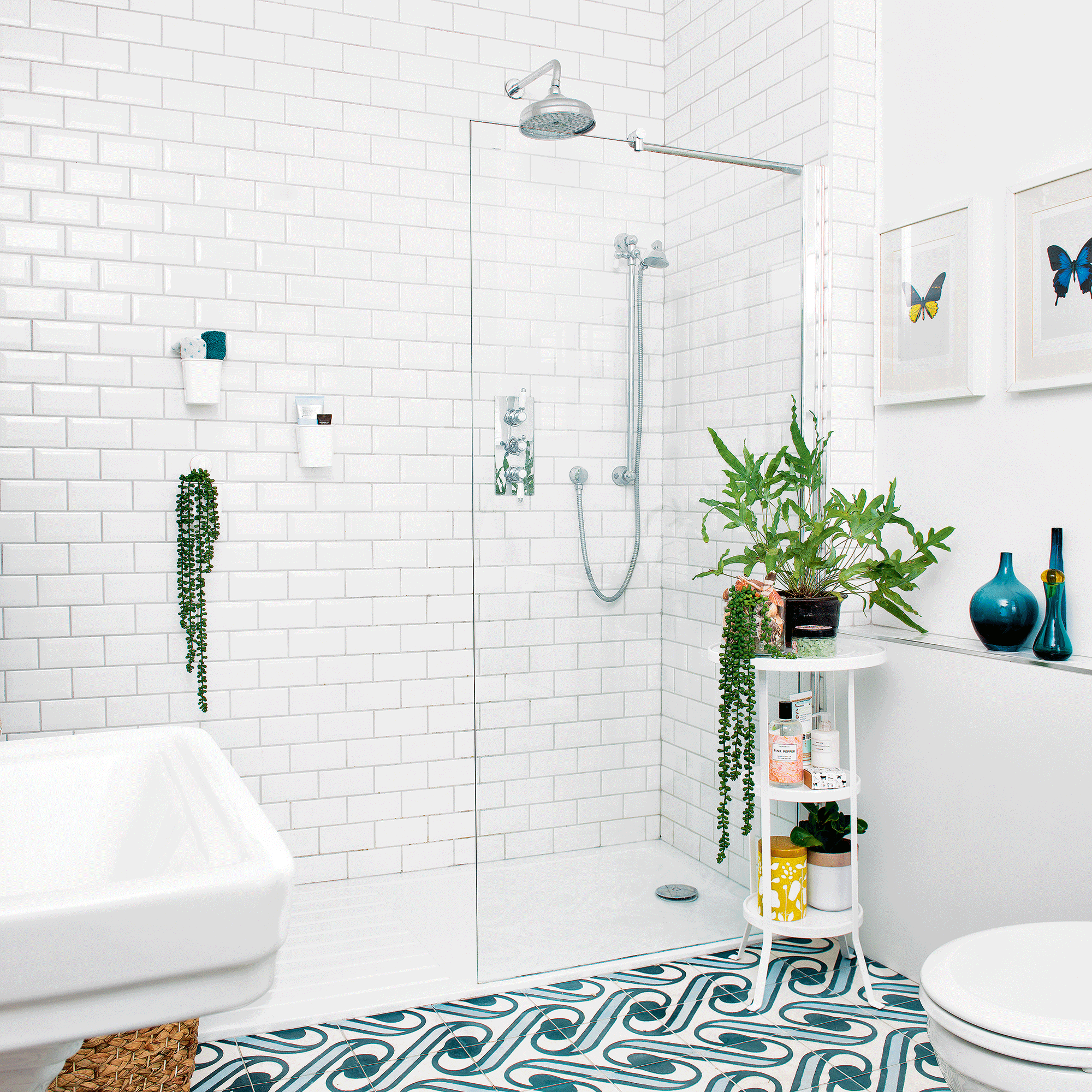
Next, a clever shower room idea. Apparently, four in five of us (81%) believe showers use less water than baths. Yet your power shower could be drenching you with 50 litres of water more than you'd put a bath.
The Energy Saving Trust predicts that a water-efficient shower head could save a household up to £70 a year. And one minute less in the shower could save you up to £95 annually on the cost to run a shower.
Thankfully, modern shower heads use current-limiting technology to save up to 40% water usage while showering under normal water pressure. So if you're sick of the drip, drip, drip from your old, limescale-encrusted shower head, now's the time to ditch it. This will cost you around £20-£40, but will help you save energy and money in the long run.
10. Install a smart meter
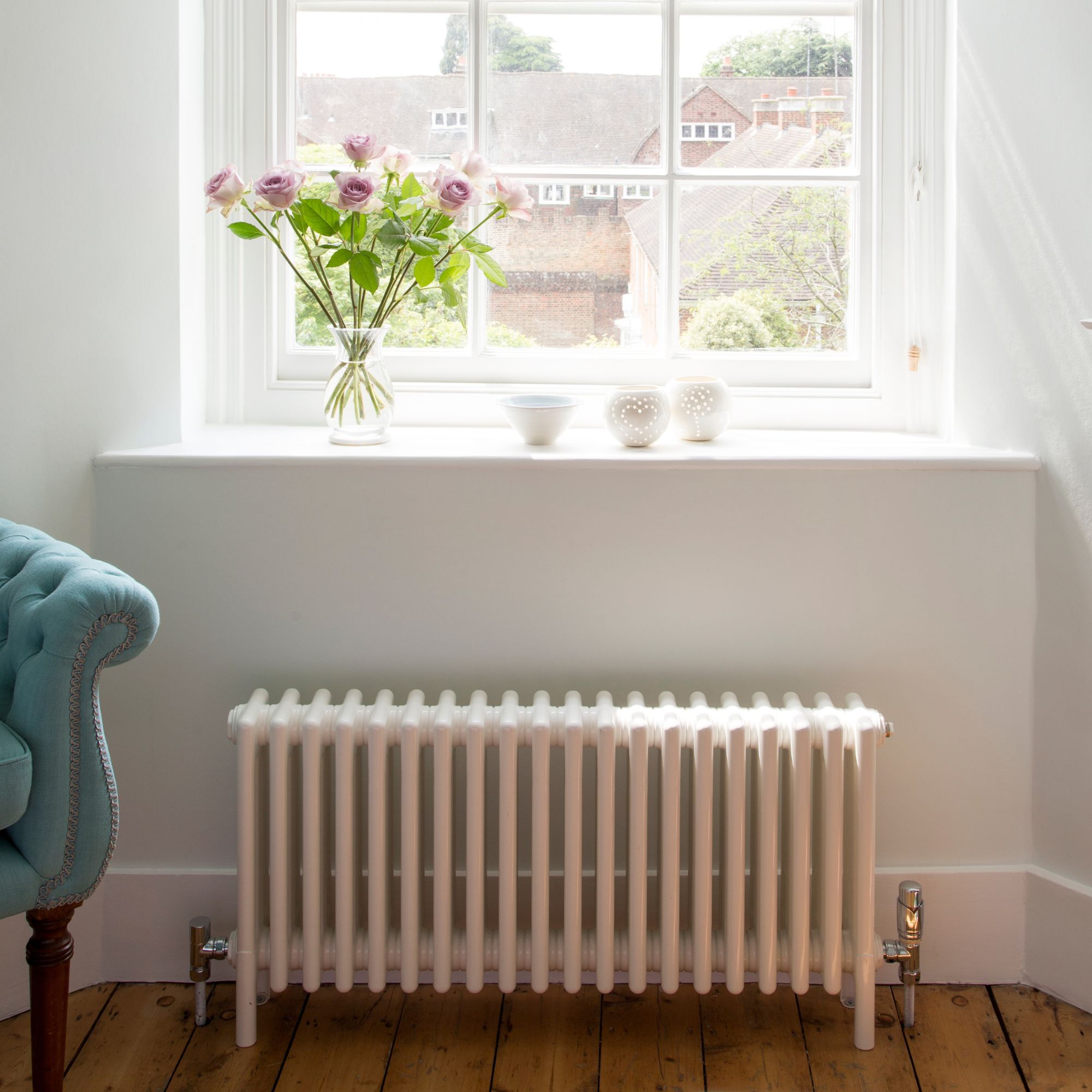
As part of a government scheme all energy supplies now install smart meters, at no extra cost, to help you keep track of what you are spending. Monitoring your daily household usage will help you be mindful of energy consumption – helping with how to save energy in homes and the resulting costs.
If you're on a waiting list and need a quick fix to start reading your usage, you can buy independent readers. There's an initial outlay, but you'll soon start saving because of it.
Not all homes are suitable for a smart meter so do check if you can get one. If not it is still a good idea to look into how much it costs to run each appliance in your household manually. You can find this out by looking at the amount you pay per pence/kWh on your energy bill and multiplying it by the kW power of your appliance. If your appliance displays the power in Watts, divide this by 1,000 to determine the number of kilowatts it uses and multiply this by the price you pay per unit of electricity to work out the hourly running costs.
11. Regularly service the boiler
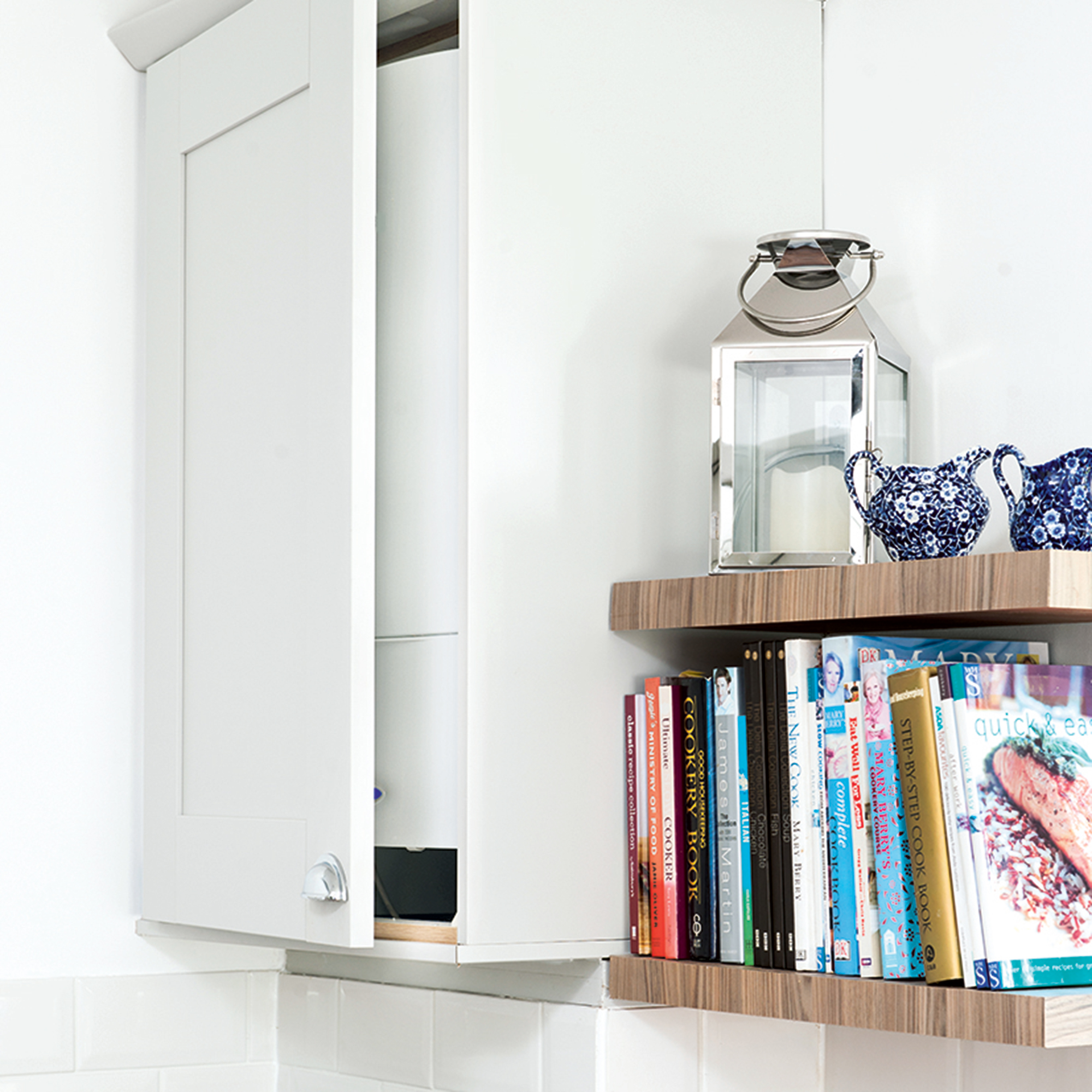
The key to lower energy bills is an energy efficient home and this starts with your boiler and heating system. Because of this, a boiler should be serviced once a year to ensure it is working well.
‘Having a falsely or broken boiler and heating system can definitely waste energy and make energy bills soar so an inspection will bring up issues that can cause this,’ say Rob Bennett and Pat Murphy of The Pimlico Group. ‘Hence, this is essential to make sure you have an energy-efficient heating home. Less waste means less consumption and less money spent on bills.
Of course, this is also the case if you have a heat pump, as it’s also recommended to service a heat pump annually.
12. Block draughts
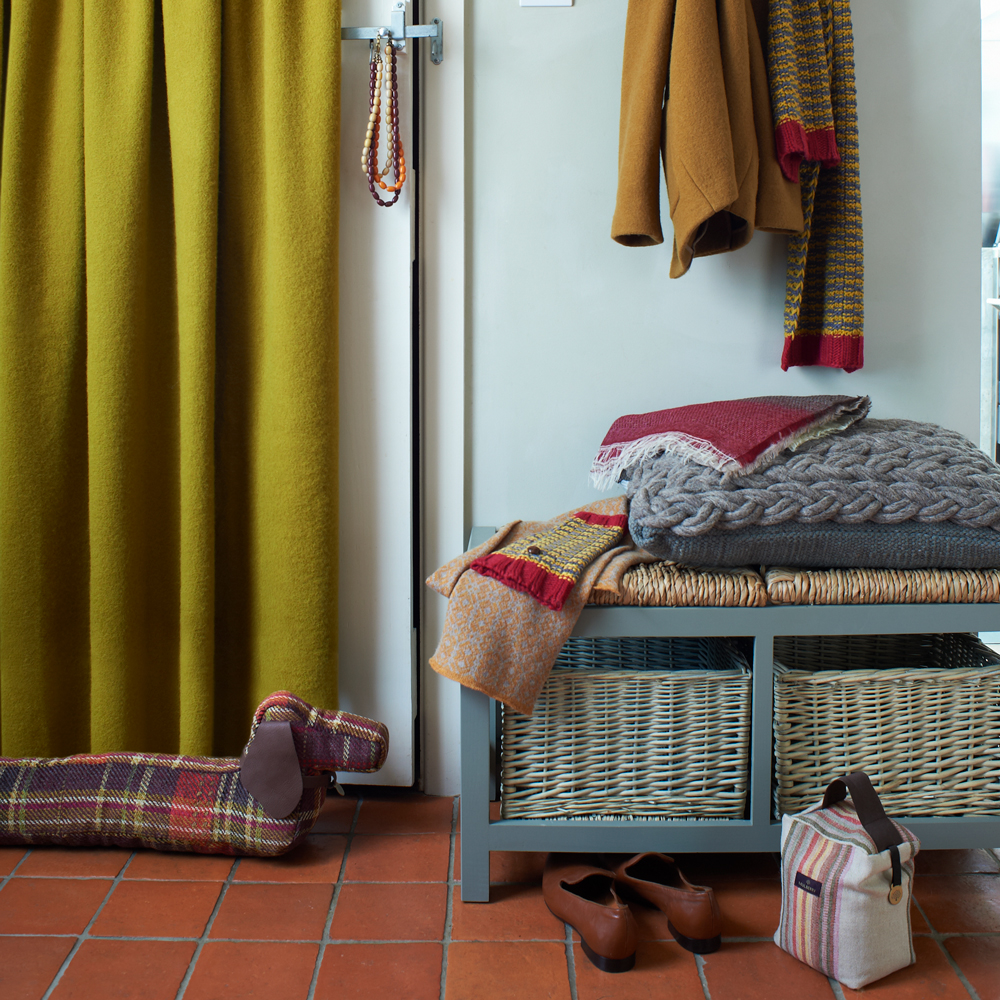
Why waste the central heating you're paying good money for? Keep cold draughts out of the house and save on heating bills instead.
There are many draught-proofing ideas out there, but a simple draught excluder is a quick, cost-effective way to tackle unwanted winter chills from doors and windows.
Thermal curtains are another affordable money-saving system, keeping the heat in so you don't need to crank up the thermostat - and they can even help keep the heat out in the summer. Similarly, an insulated door curtain can work wonders on a draughty door, especially one that goes between your home and an attached or integral garage.
13. Invest in tumble dryer balls
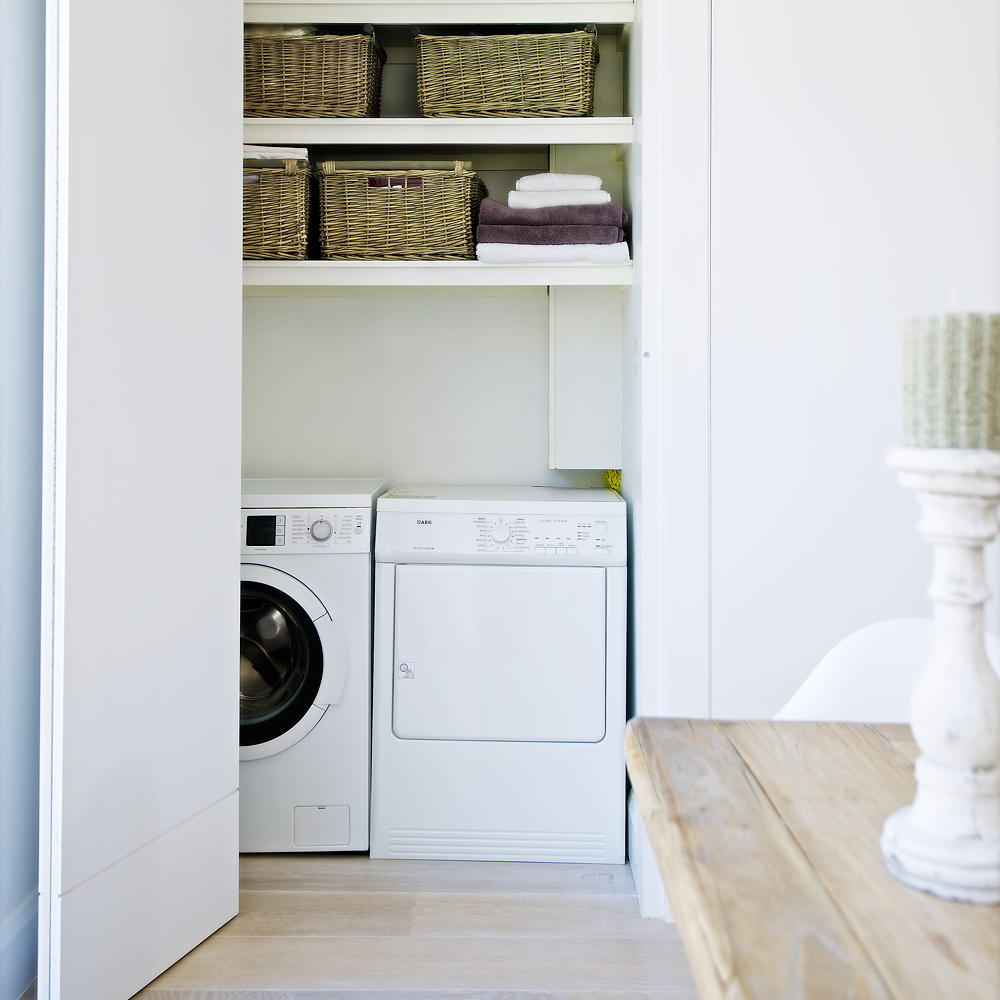
While a smart utility room is a luxury we'd all love, there can be hidden costs – particularly if you've installed a tumble dryer. On rainy washdays, it can guzzle plenty of energy while tumbling towels and sheets to fluffy and soft perfection. But did you know a tumble dryer ball can help?
The ingenious balls create space between the laundry, airing them and helping reduce the time needed in the dryer.
They’re also something that This Morning’s Lynsey Crombie swears by. She said on the show, ‘Because of its heat technology, it's basically taking the heat, reflecting the heat, and splitting it up. You only need one ball and honestly, it's been a game-changer.'
14. Combine cooking with heating
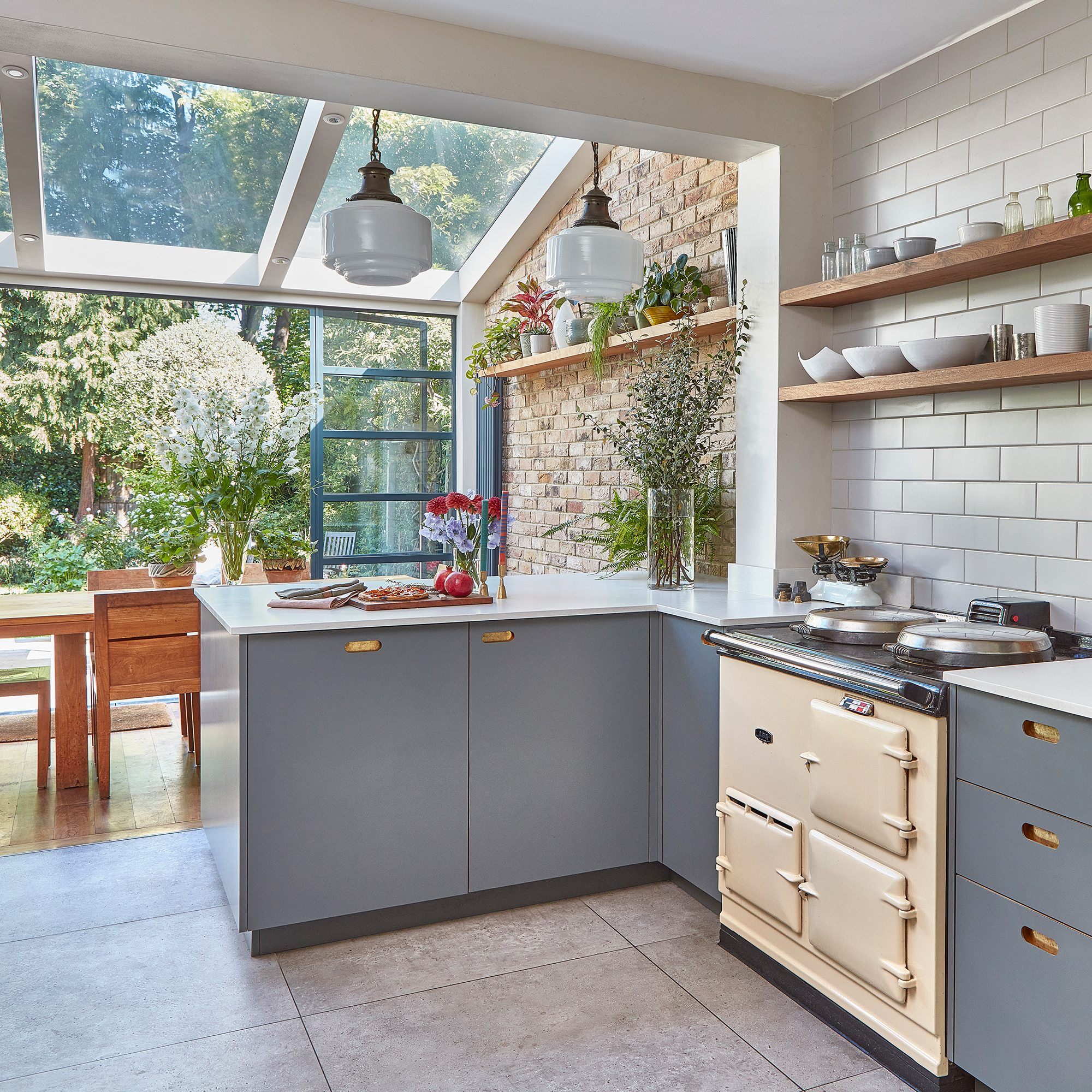
Combining a stove or range cooker with a boiler means you can have a smart appliance on show that can heat the whole house. Traditional range cookers can heat hot water for the kitchen and bathroom and run the radiators, while providing the kitchen with heat.
A boiler stove provides hot water and can run radiators, and works best in conjunction with other heating systems. Or you could discover how to switch energy supplier and save money.
15. Bleed your radiators
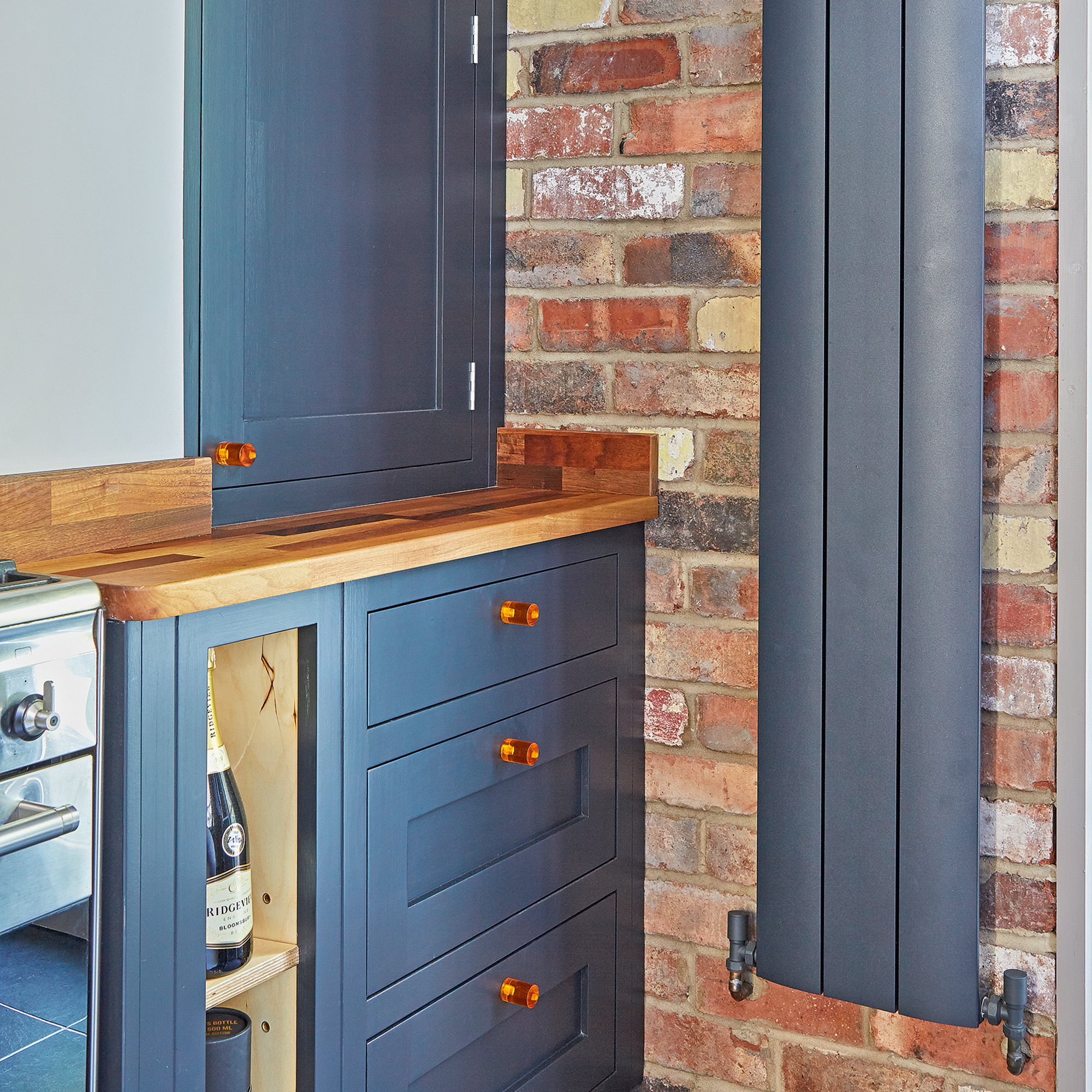
Not feeling the benefit of your central heating system? You could be wasting unnecessary money without realising it. So, you should always check your radiators are in good working order before the winter chill really arrives.
The experts at Bionic explain, ‘The energy efficiency of an old boiler can be as low as 60%, in which case 40% of the energy you pay for is going to waste. You can get your heating system ready for autumn-winter by bleeding your radiators to release trapped air, ensuring even heating.’
Yes, this is something you should do if the top of a radiator feels cooler than the bottom - but it’s wroth doing it annually anyway, just in case.
Learning how to bleed a radiator is surprisingly easy; the process only takes 10 minutes. But don’t worry if you’ve lost your key, as it’s also possible to bleed a radiator without a radiator key.
16. Don't cover or block your radiators
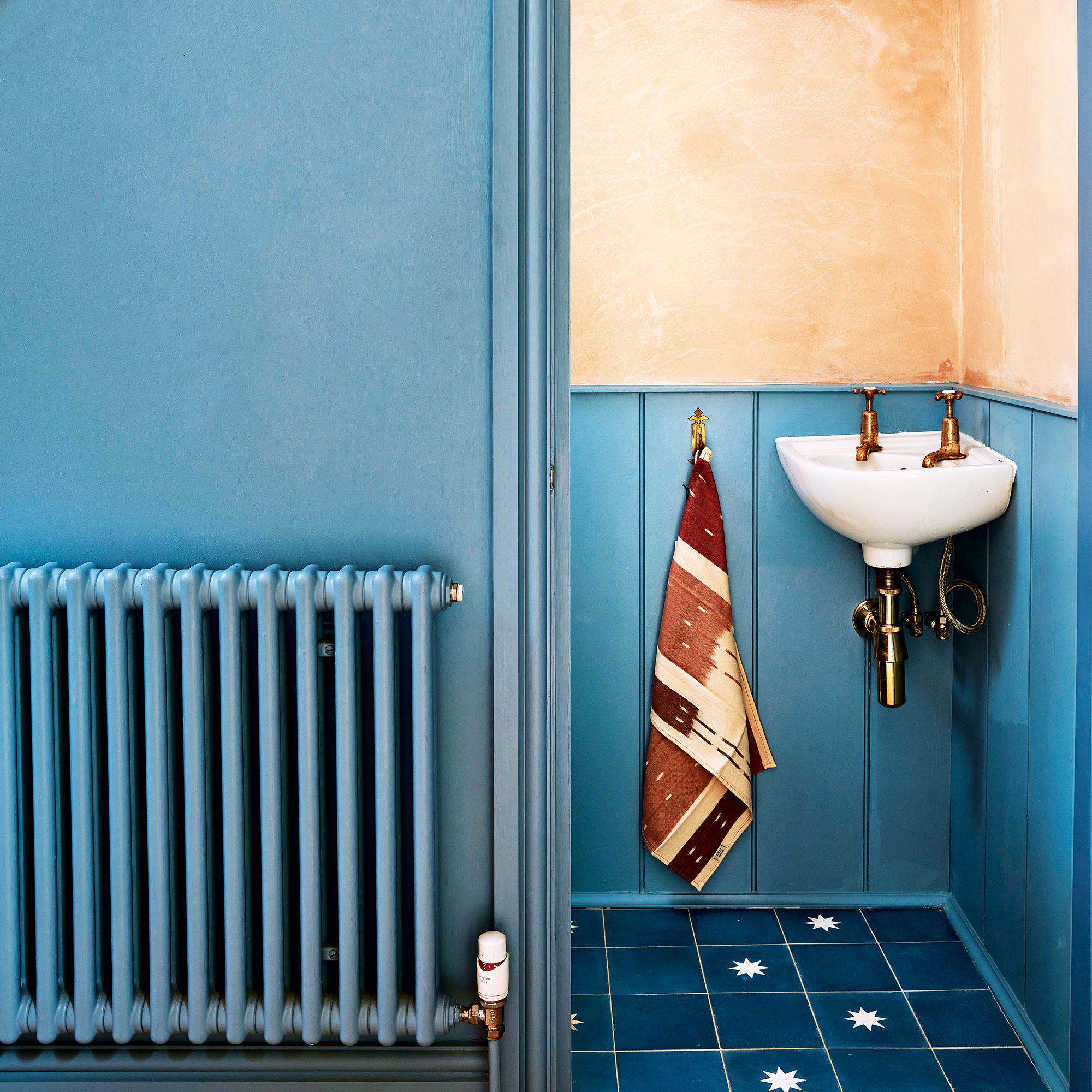
When stretched for space in a living room, it can be tempting to shove a sofa or armchair against a radiator. 'Resist the urge,' says John Lawless, heating expert at BestHeating.
'Anything placed over or next to the radiator will block the airflow, causing it to emit less heat and make the boiler work harder - costing even more money.'
'Moving your sofa even six inches away from the radiator will allow heat to flow around the room much more effectively,' explains property expert Holly from webuyanyhouse.com.
'The more space between furniture and radiators the better. But because heat rises you can get away with smaller gaps if you don't have much space in the room.'
In fact, you could instead use radiator reflectors to ensure you’re saving energy at home. Ideal Home’s Renovation Editor, Sarah Handley, did that and cut her energy bills by 20%.
17. Insulate your wall cavities
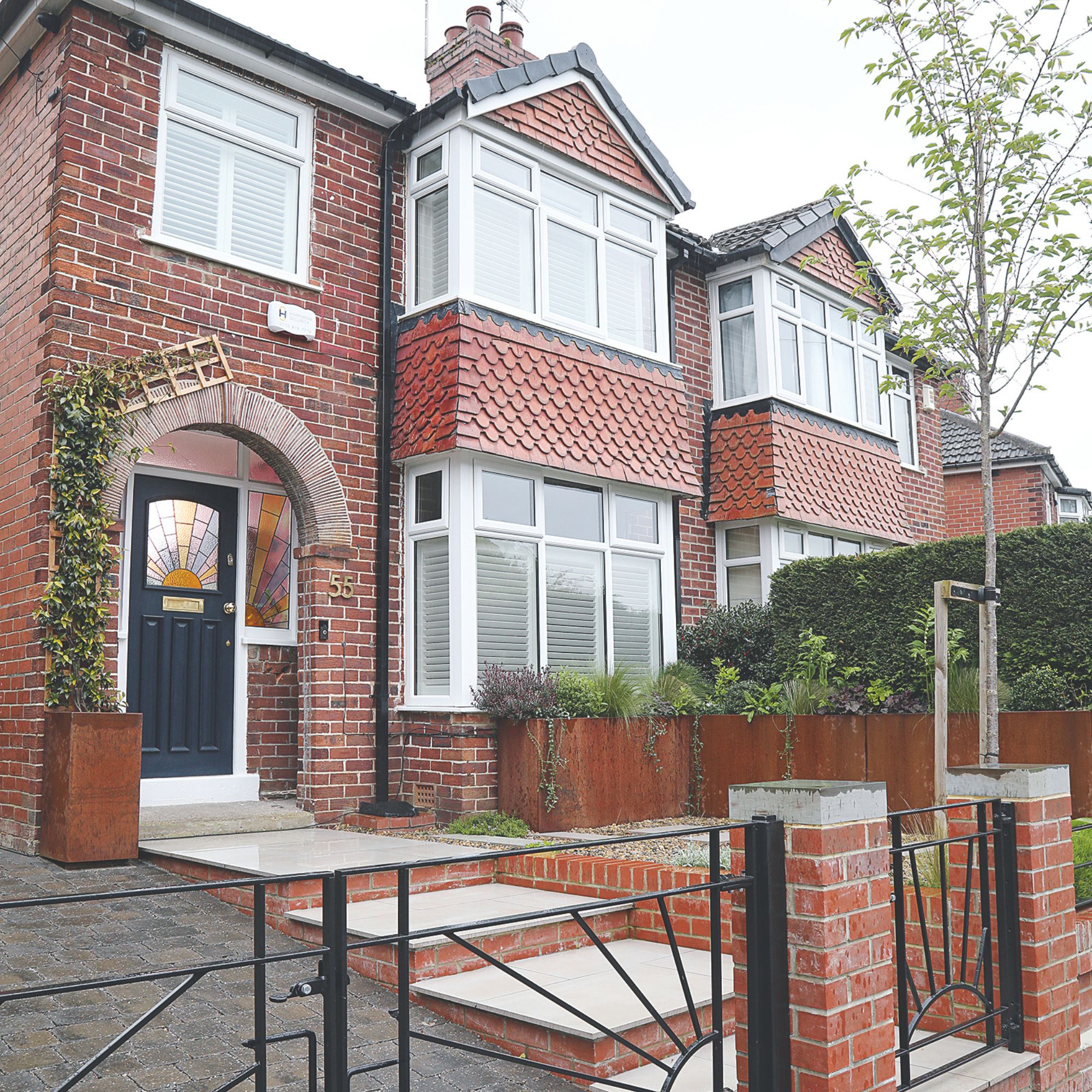
If you want to save energy at home, you might focus on your loft insulation or everyday draughts. But your walls also have the power to leak heat every day, which is why you might want to consider cavity wall insulation - if applicable to your home.
Simon Bones, founder and CEO of Genous, says, ‘Insulating solid brick or stone walls is expensive, but if your home was built between about 1930 and 1980 then it may well have cavity walls and if these haven’t been filled then they can be insulated much more cheaply. You will need professionals to get this done and it doesn’t suit all homes but it tends to be the biggest energy-saving treatment you can do.’
18. Fill your fridge and freezer with bottles of tap water
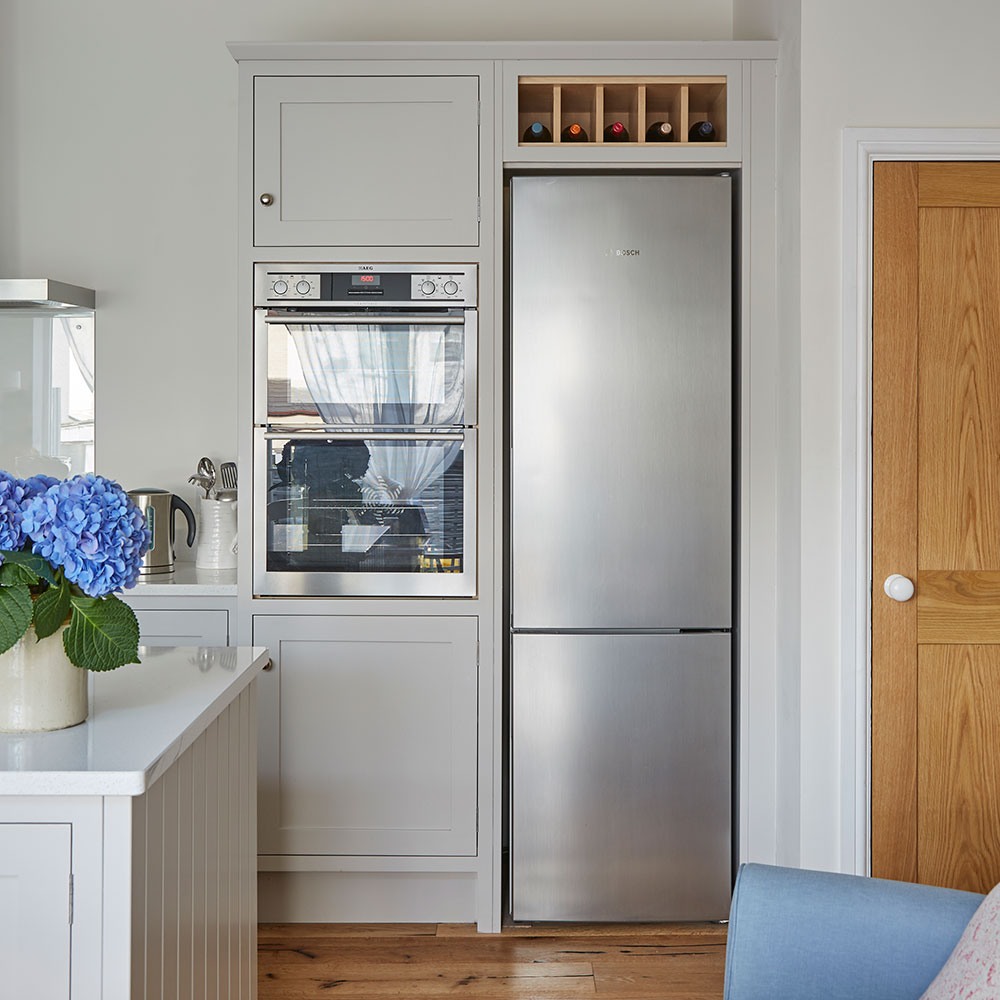
It may seem illogical, but it takes a lot more energy to keep an empty fridge cold than a full one. that's why Location, Location, Location star Phil Spencer recommends you fill yours up with bottles of water.
Meanwhile, the freezer is guilty of using the most energy out of all kitchen appliances. An F-rated 70/30 287-litre fridge freezer uses 275 kWh per year, making its annual running costs £82.50 (based on July 2023 energy price cap). So again, keep it full – if not with food, then with bags of ice.
You can work out how much your fridge freezer costs to run yourself if you know the kWh per year, and what you pay for energy per pence/kWh.
19. Use your dishwasher's eco function
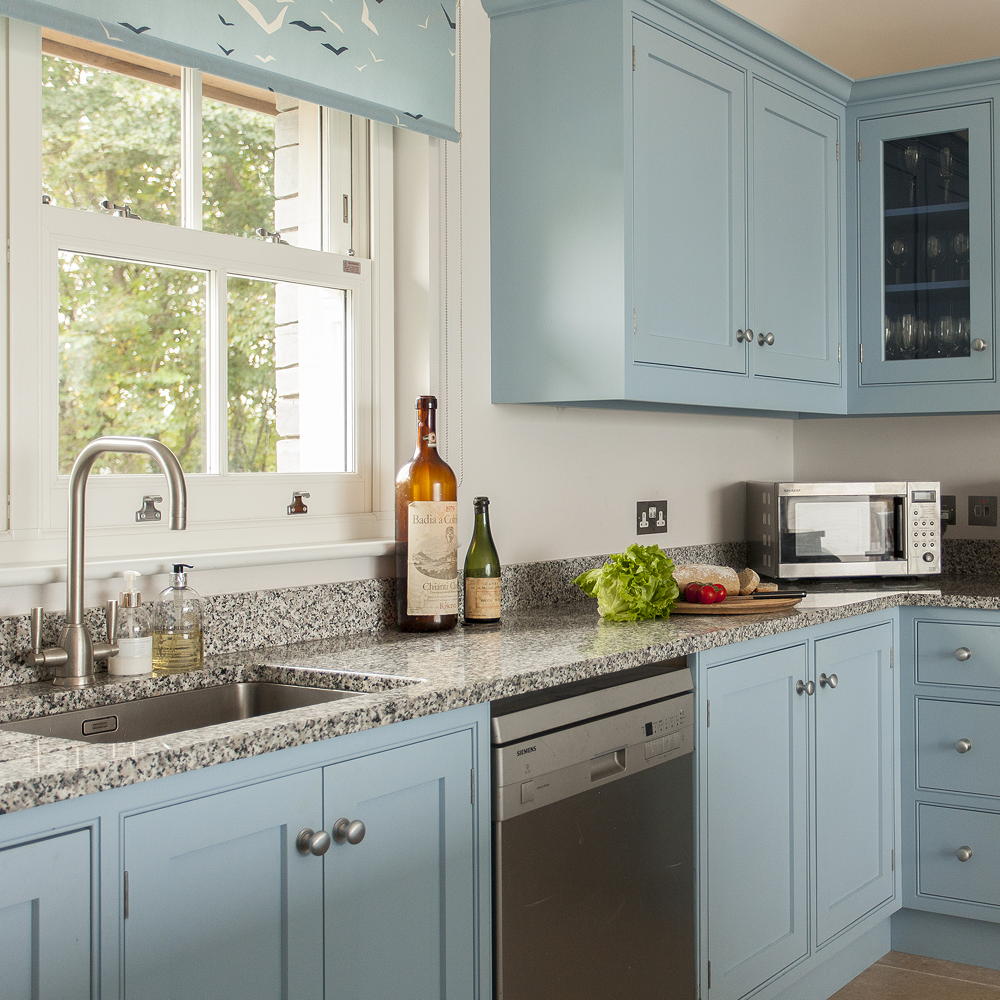
A dishwasher is one of the most helpful household appliances in a busy family home. However, according to the Energy Saving Trust, a household could save £17 a month by reducing the use of the dishwasher by once a week. After all, the cost to run a dishwasher is surprisingly high.
Turning the dishwasher onto energy-saving mode and reducing the temperature are all also great ways to make savings.
20. Keep your hob clean
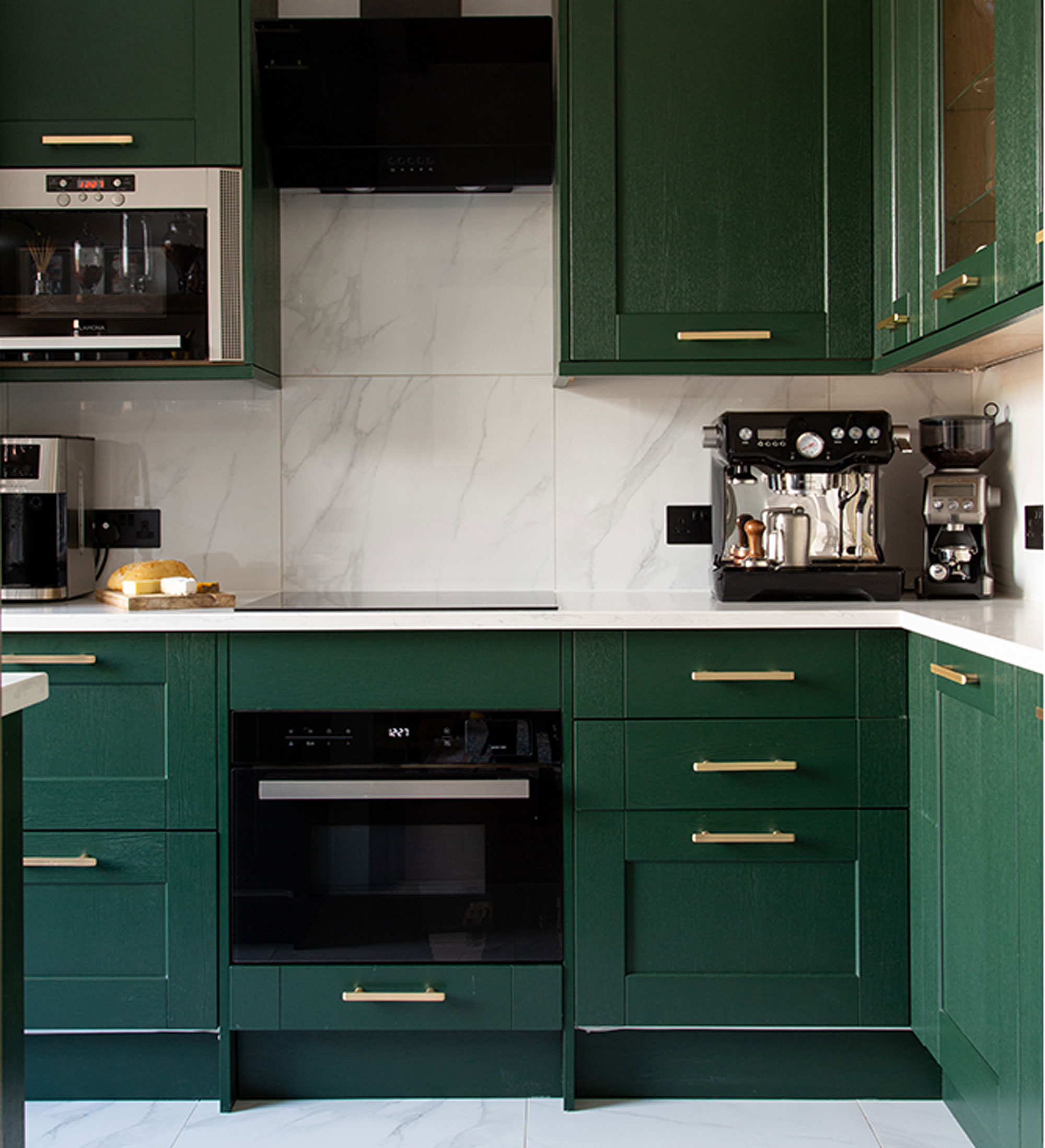
On average an electric hob only costs around between £0.01 and £0.02 per use. However, any burnt-on food or grease on the hob will absorb the heats making it less efficient.
Because of this, it’s important to clean your hob to ensure you’re not using more energy and spending more money than you need to. After all, save the pennies, and the pounds look after themselves!
You could even try this hob cleaning hack, which doesn’t require any scrubbing at all.
21. Consider solar panels
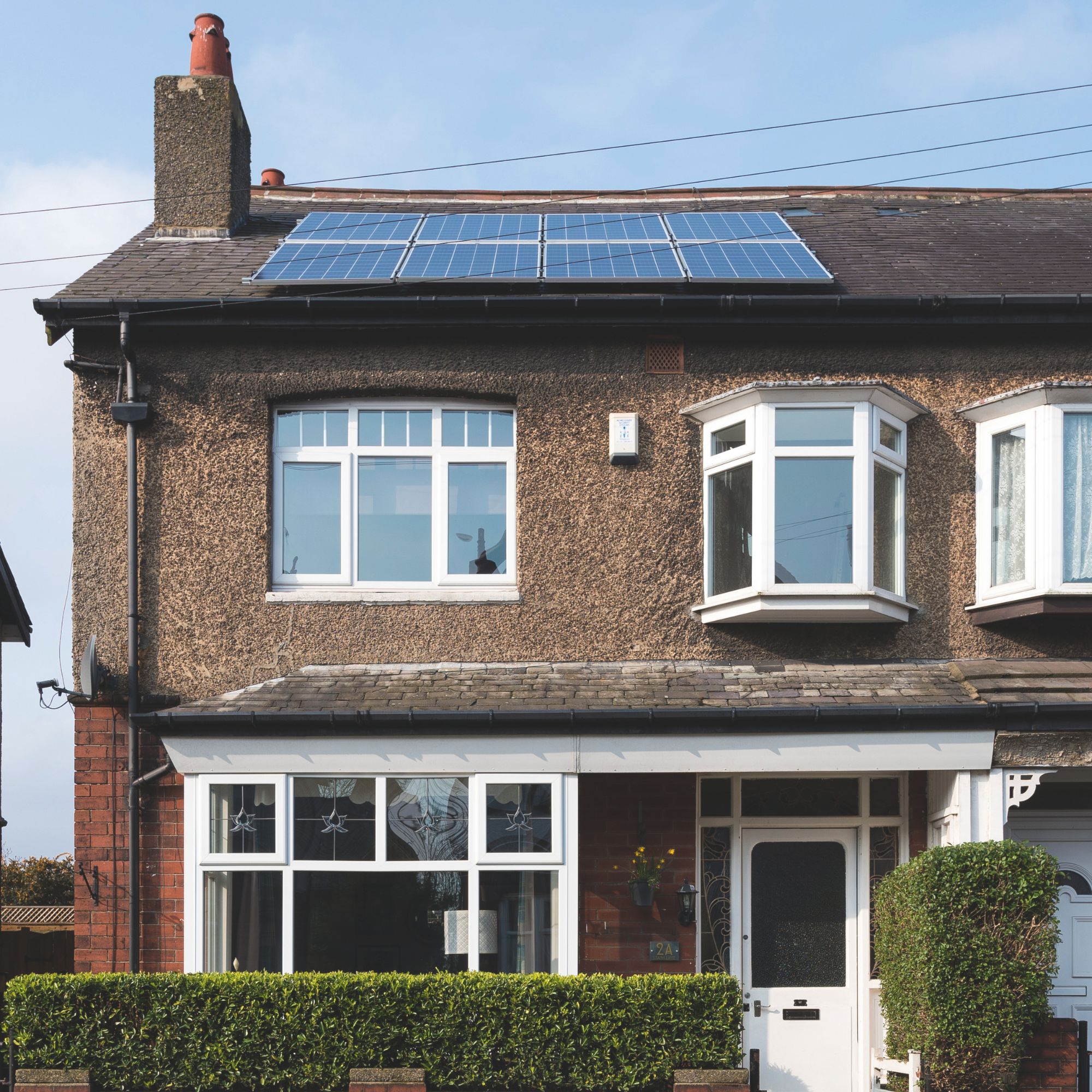
Solar panels are becoming more and more popular, and for good reason. After all, they’re a great way to not only save energy at home but also make a more eco-conscious choice.
Simon says, ‘More expensive than most of the items on this list, but the payback on solar panels is now pretty strong for most people. Unshaded, south-facing roofs without lots of obstructions are best, and bungalows can be good to do as the scaffolding is cheaper, but most properties with a roof with space on it can take panels, though it’s more tricky if you’re listed or in a conservation area. The energy you produce is green and free, and your retailer will pay you for what you don’t use.’
Of course, it’s worth understanding how much solar panels will cost before making any decisions - but it’ll definitely be worth it if you’re not planning on moving anytime soon.
22. Reduce your shower by one minute
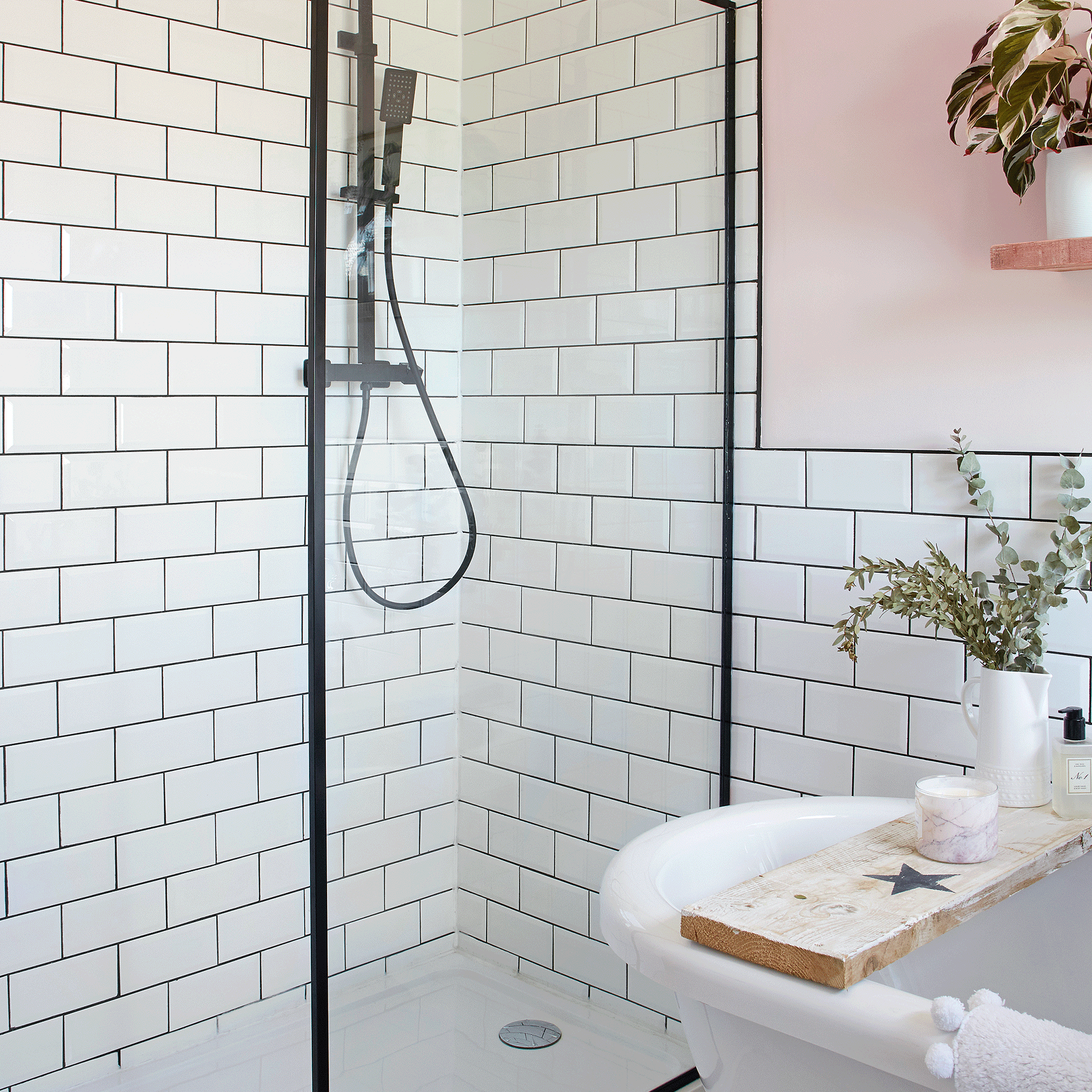
Taking shorter showers and turning the tap off when you’re brushing your teeth isn’t just about conserving water, it can also save energy too. If you regularly leave the hot tap running you could be wasting precious energy to heat the water up.
‘An average home uses almost 20% of its total energy consumption to heat water through cooking, showering, or doing laundry,’ says Rob Bennett and Pat Murphy, Technical Support Managers at the Pimlico group.
According to Thameswater if a family of four reduced their showering time from 10 minutes to just nine minutes they could save £52 on energy bills each year. Not to mention £45 on metered water bills.
23. Get a washing-up bowl
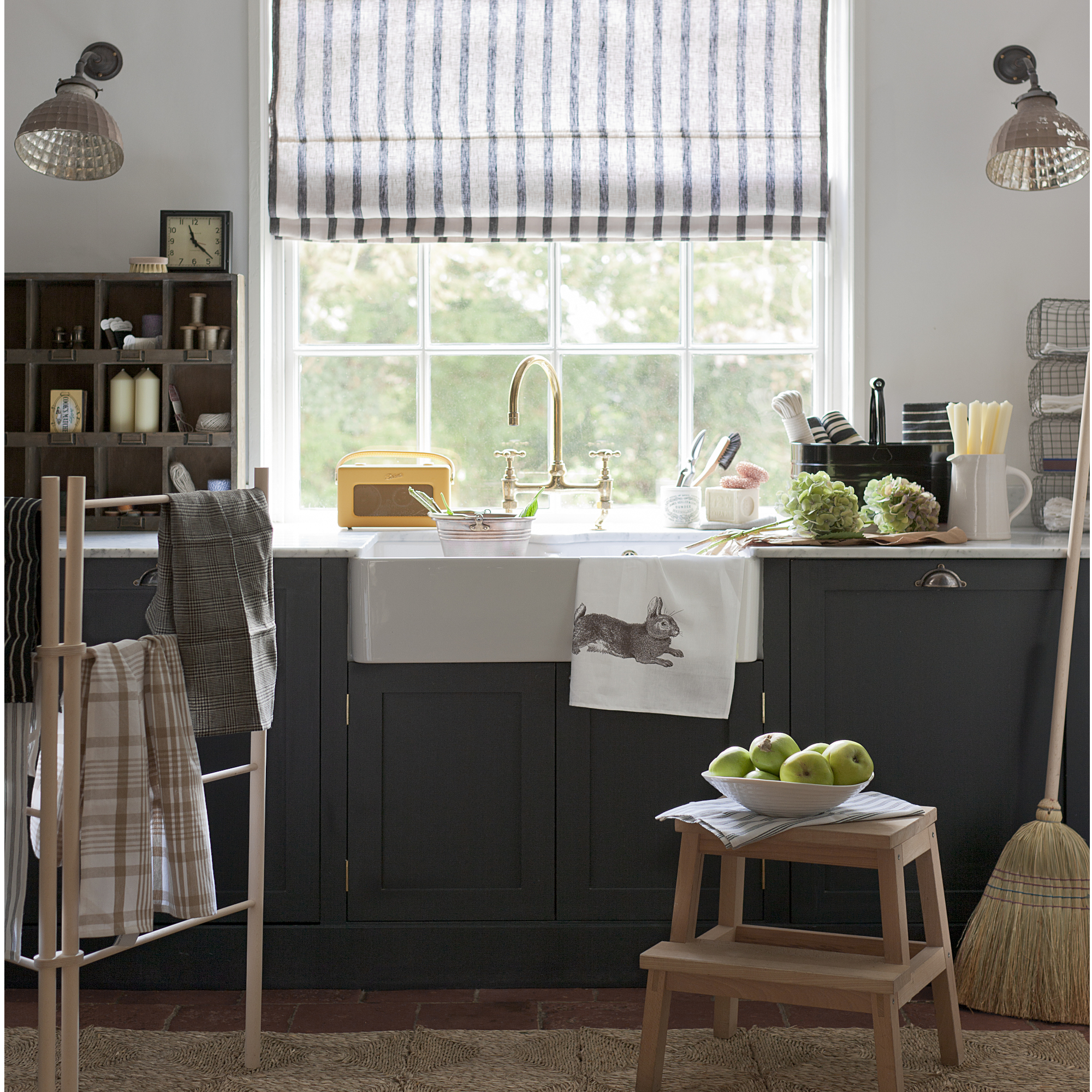
The hand-washing vs dishwasher debate is a tough one, but some people have no choice but to wash by hand. And while this can actually waste more energy, there are some changes you can make to reduce this - including buying a washing-up bowl.
You can pick one up for a pound or two, but you'll make back the investment easily. That's because, although almost one in five of us (18%) think a running tap uses less water when washing up, you could save up to £25 on your water bill by investing in a bowl.
And, of course, you're not paying to heat unnecessary extra water, so you'll save on your energy bills, too.
24. Pick your paint wisely

Another of property expert Phil Spencer's genius energy saving tips is to paint walls with a satin or semi-gloss paint rather than a gloss as it will reflect the heat better. This will keep a room warmer – but will only save you money if you're planning to redecorate, regardless.
25. Don't heat empty rooms

Finding the most efficient way to heat your home in winter is one of the best ways to save energy at home, and this can leave you wondering whether to heat the whole house or just the rooms you’re using.
Well, if there is a guest room or storage room you don't spend much time in, you can save money by not heating it.
'Turn the radiators off and close the doors, particularly in Winter,' advises Holly from webuyanyhouse.com. 'This can cut your bill by as much as a third, depending on how many rooms you're not using.'
If you work from home, try these methods for staying warm while WFH without having your heating on for longer.
26. Leave your blinds and curtains open longer in summer
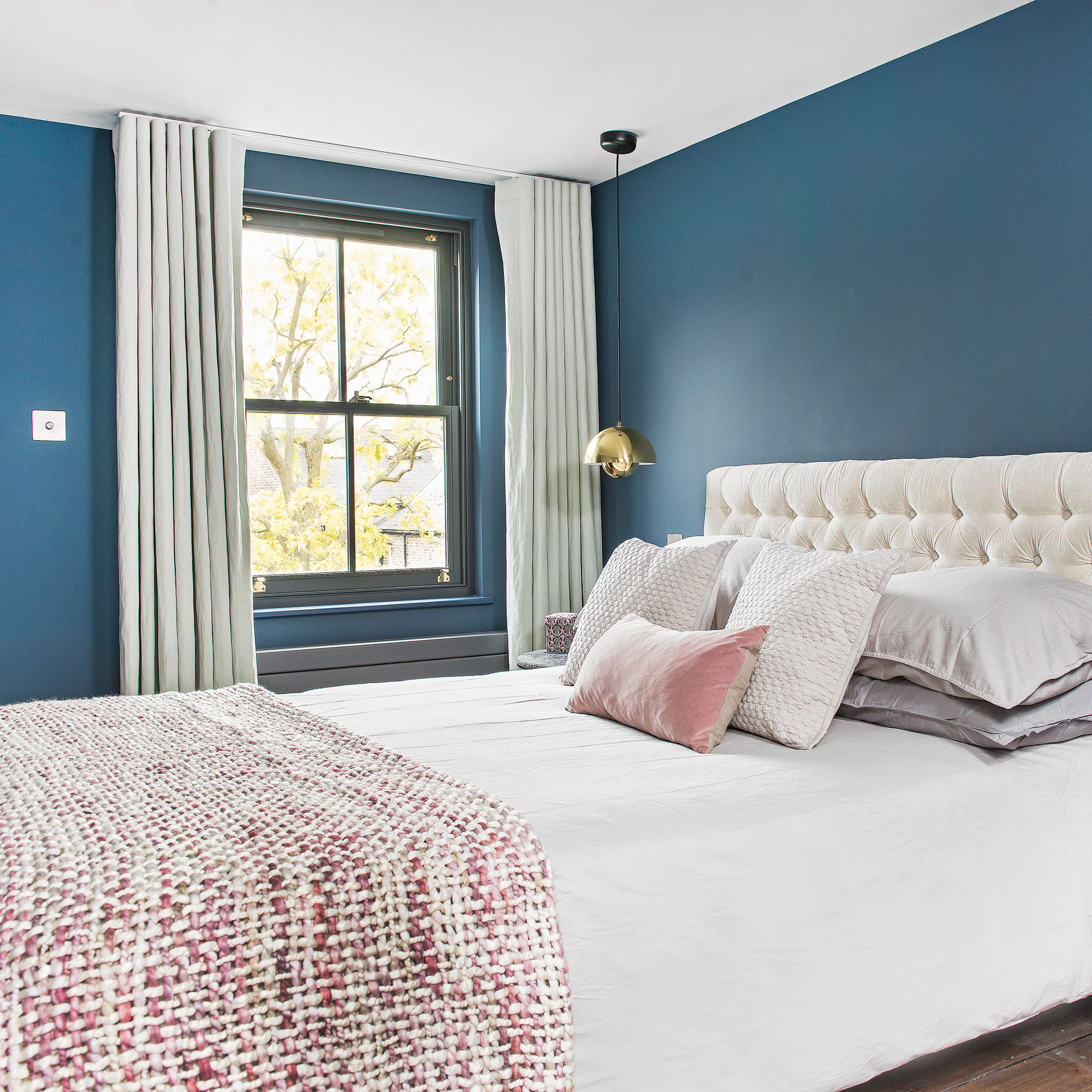
During the summer, make the most of the suns heat and natural light.
'It's tempting to turn your lights on early in the evening and keep your curtains or blinds closed,' says Holly from webuyanyhouse.com.
'However, particularly in the summer months, try keeping them open until sunset. The natural light and heat can help save you around 60% on your bills compared to constantly having your lights on.'
27. But close your curtains in winter

A lot of heat can be lost through windows and walls. Stop the great heat escape by closing your curtains and tucking them behind your radiator in the evenings.
Jess from BestHeating says, ‘Using thick curtains and closing them at dusk is a simple way to retain warmth and block out cold air. Heavy fabrics like velvet or thermal-lined curtains help insulate windows, trapping the day’s warmth inside and reducing heat loss.’
She adds, ‘For best results, ensure the curtains fit snugly and extend below the windowsill to prevent drafts. This easy step can keep your home warmer and cut down on heating costs.’
28. Clean your radiators
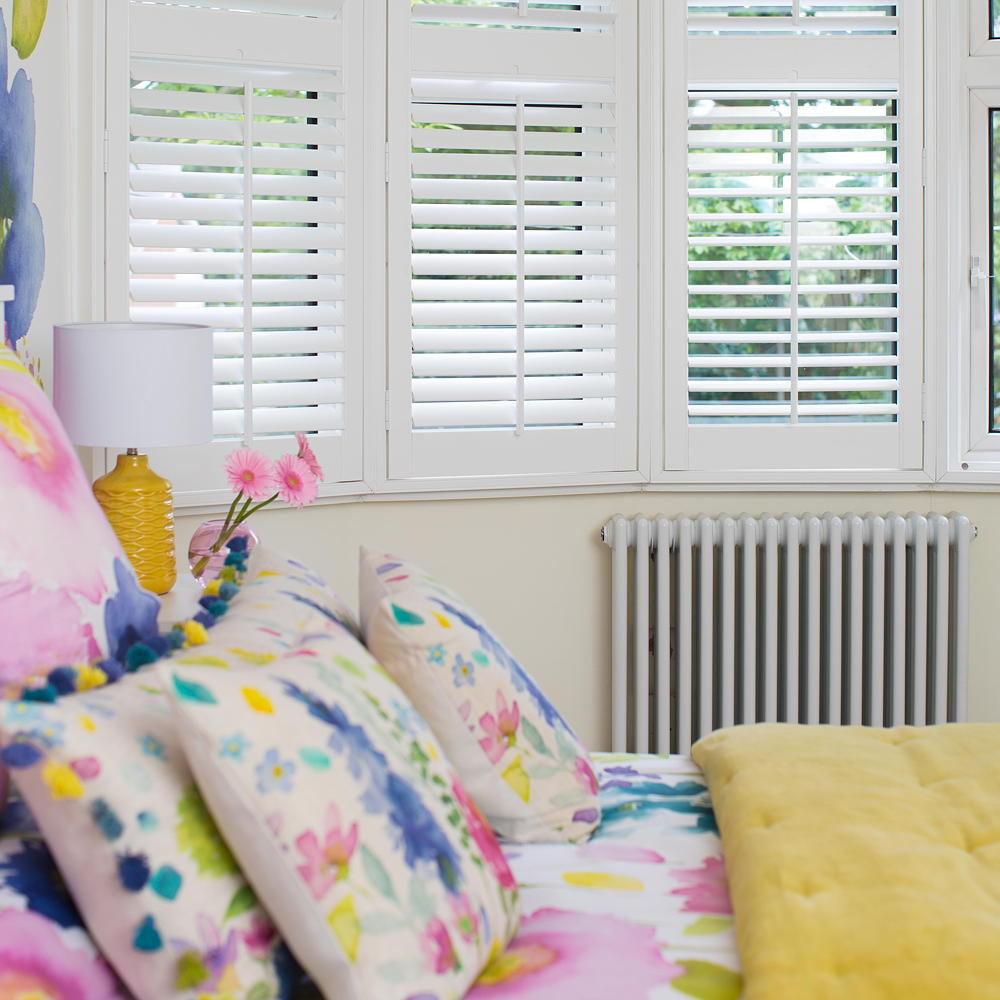
With their nooks and crannies, it’s easy for dirt and debris to build-up behind and around your radiator. But this is your sign to clean a radiator to help you save energy at home.
As Rhiannon Moore from Toolstation explains, ‘Dust between the fins of a convector radiator can prevent heat from escaping. It can also cause the radiator to give off a burning or musty smell when heated.’
And, apparently, this simple task can save you up to £225 on your energy bills each year.
29. Check your loft insulation
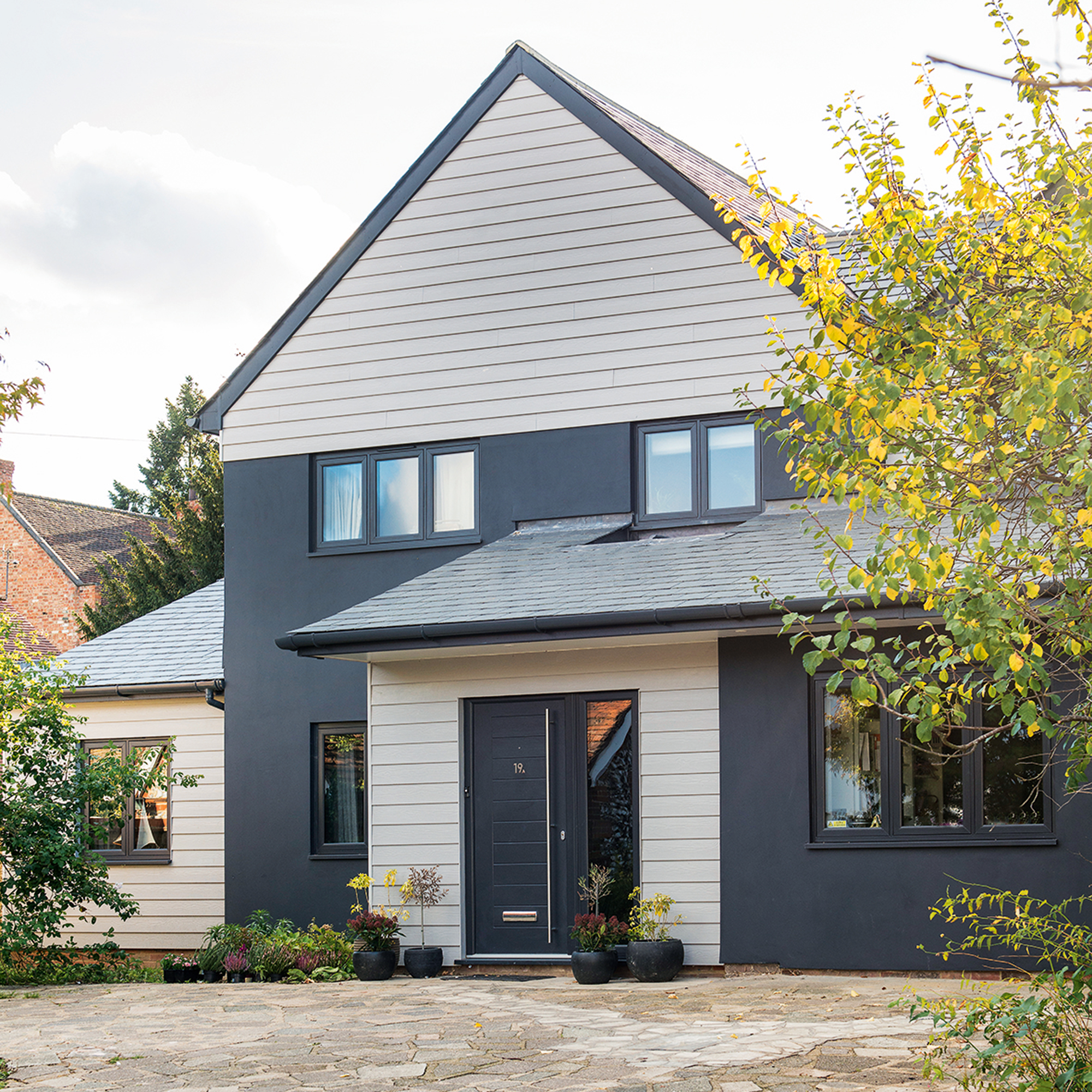
A quarter of a home's heat is lost through poorly insulated roof spaces. So, check your roof insulation has a depth of between 250 and 270 mm, to make sure you aren't losing all that precious heat out of the roof.
‘This can sound a bit repetitive, but this is our main advice as is the most effective way to save on energy bills. Make sure these are properly insulated to reduce heat loss and save on energy bills: loft, roof, draught-proofing, windows, doors, pipelines, tanks, radiators and blocking gaps,’ say The Pimlico Group.
A well-insulated home means you won't have to rely on boilers or aircon to adjust temperatures at home. The Pimlico group estimates that it could save up to £500 per year in energy bills. And while the cost of loft insulation can be off-putting, it’ll pay off in the long run.
30. Move furniture away from external walls

Your furniture arrangement can have a huge impact on how warm or cool you feel in a room. If you keep catching yourself cranking up the heating and your sofa is against an exterior wall, try moving it.
'If you can arrange your house so that most of the furniture sits against internal walls, you should feel warmer,' says Holly from webuyanyhouse.com. 'You'll feel the heat from throughout the house, rather than the cold seeping through from outside.'
'This should allow you to have the heating on for shorter periods of time and reduce your bill by 5-10%.'
31. Lay a carpet

Carpet and underlay can reduce energy bills by around £500 over 10 years, research shows. 'But isn't carpet expensive?' we hear you ask? Well, in reality, the initial cost of a good-quality carpet can be recouped over its lifetime through considerable energy savings.
According to the National Energy Foundation, the average British home loses 10% of its heat through uninsulated floors. A good-quality carpet, in combination with underlay, can provide sufficient insulation to prevent 15 times as much heat escaping as the same thickness of standard fibreglass floor insulation.
'The trick to ensuring a carpet provides as much insulation as possible is to combine it with the right underlay for your needs. This will increase the overall ‘R-value’ — the measure of resistance to heat flow through a material — of the flooring and help to prolong the life of the carpet itself,' says Richard Sim, digital manager at United Carpets and Beds.
FAQs
What is the average UK electricity bill per month?
According to Ofgem, the average monthly UK electricity bill is around £73. However, this price is based on the average energy use in a house with 2-3 occupants where it’s assumed that they also pay a gas bill and have a well-insulated house.
But the amount you actually pay will depend on a few factors whereabouts in the country you live, how efficient your house is and whether you use more or less energy than the average.
What is the biggest household expense?
Aside from mortgages or rent payments, the biggest household expense for most UK residents is household utilities. This includes everything from your electricity and gas bills to your water rates and even your TV license.
As energy prices in particular have fluctuated wildly since the pandemic, it’s important to reduce your usage to keep your bill as low as possible.

Amy Cutmore is an experienced interiors editor and writer, who has worked on titles including Ideal Home, Homes & Gardens, LivingEtc, Real Homes, GardeningEtc, Top Ten Reviews and Country Life. And she's a winner of the PPA's Digital Content Leader of the Year. A homes journalist for two decades, she has a strong background in technology and appliances, and has a small portfolio of rental properties, so can offer advice to renters and rentees, alike.
- Lauren BradburyContent Editor (House Manual)